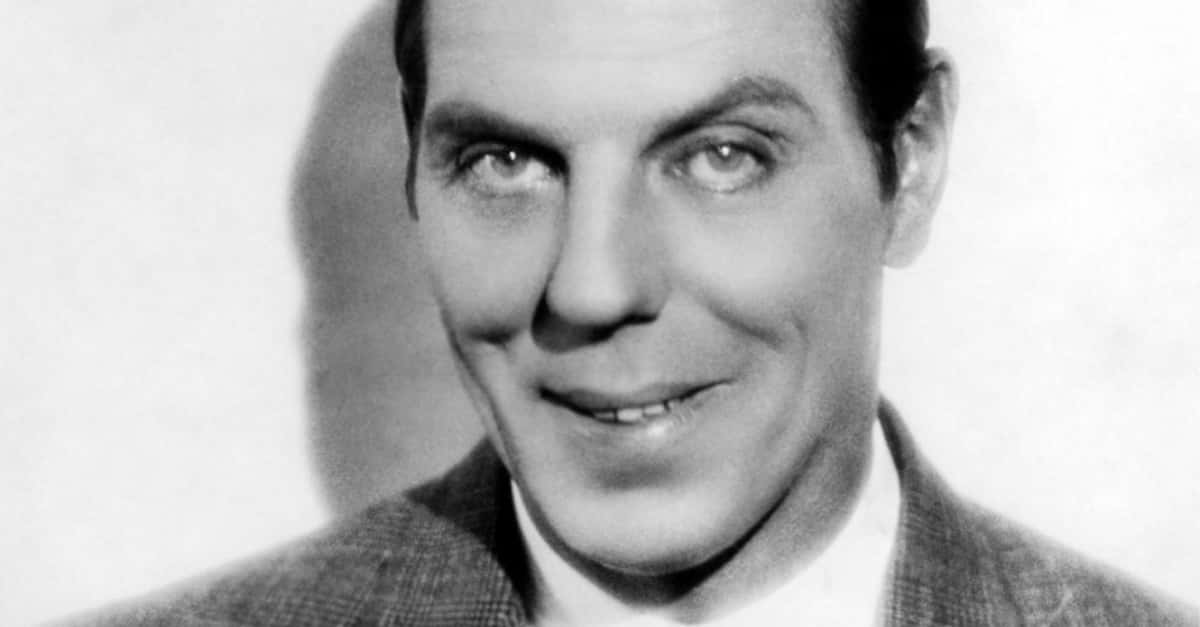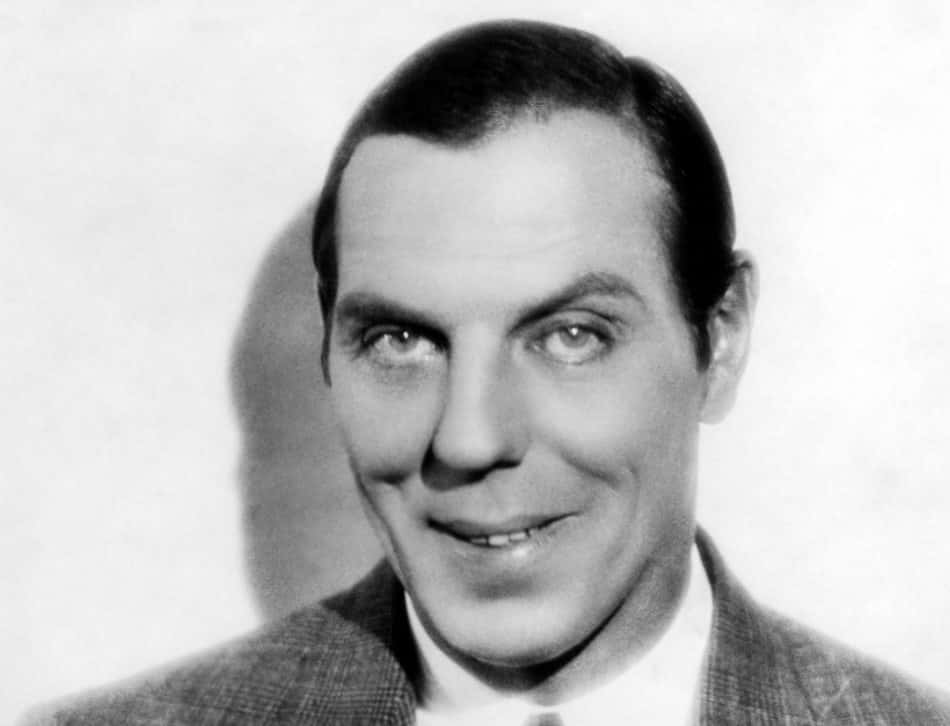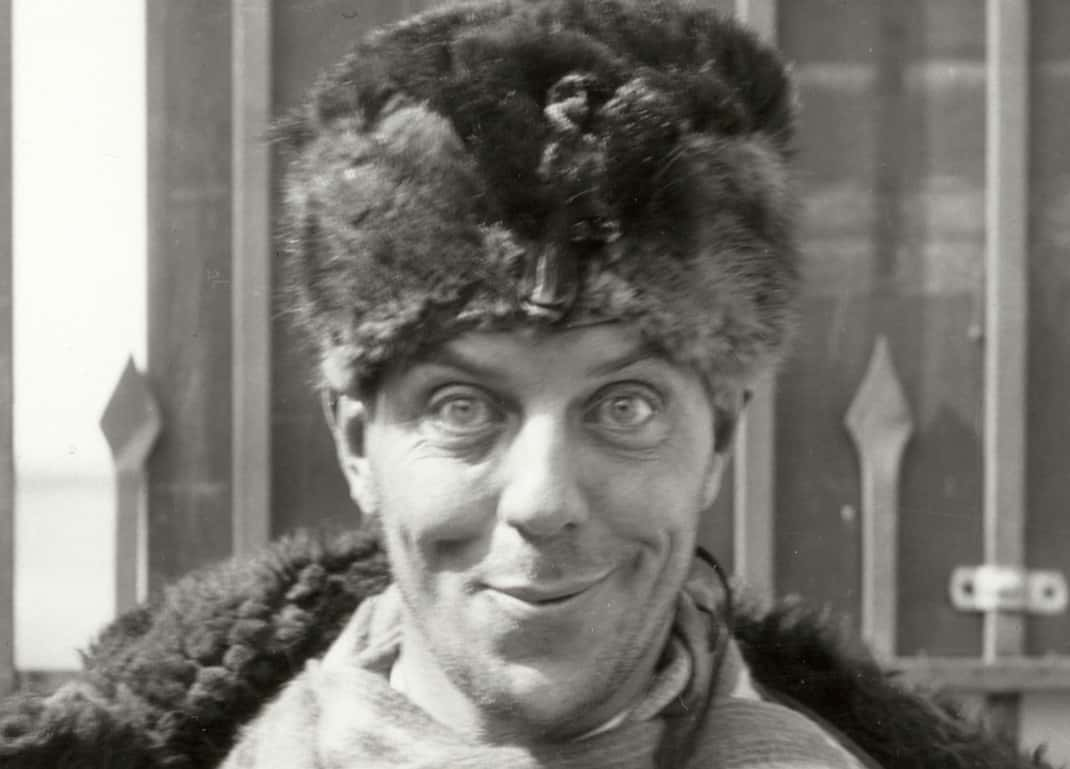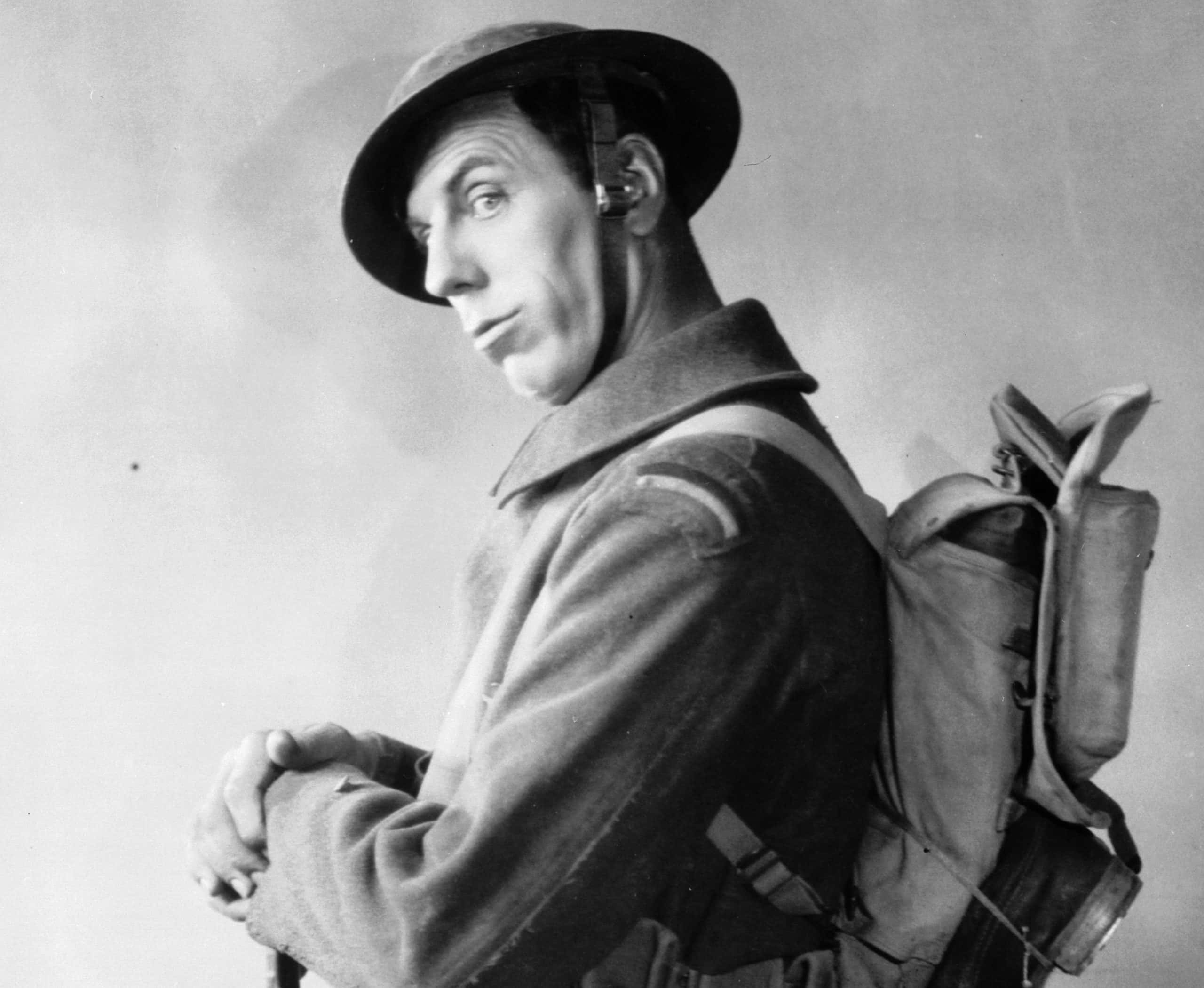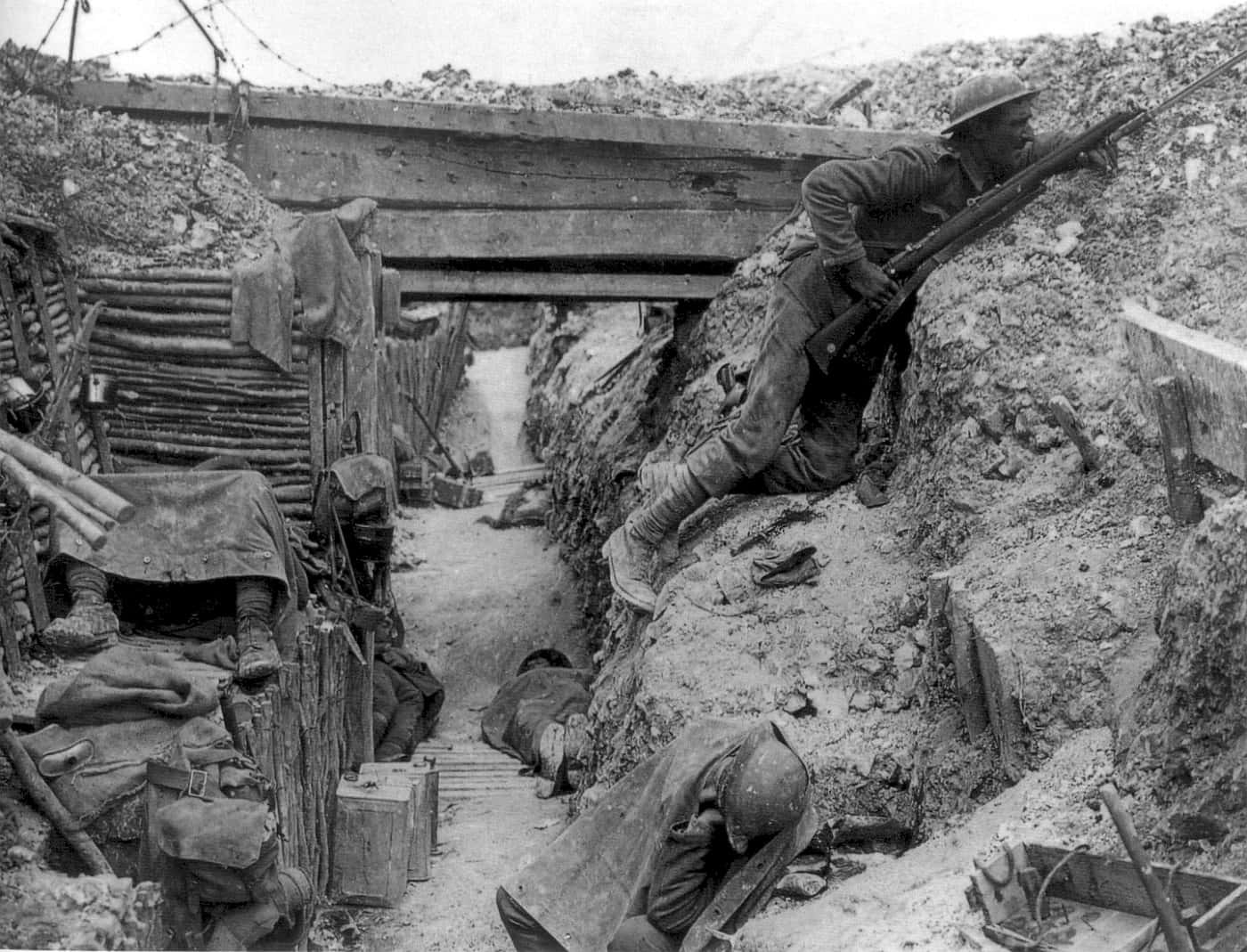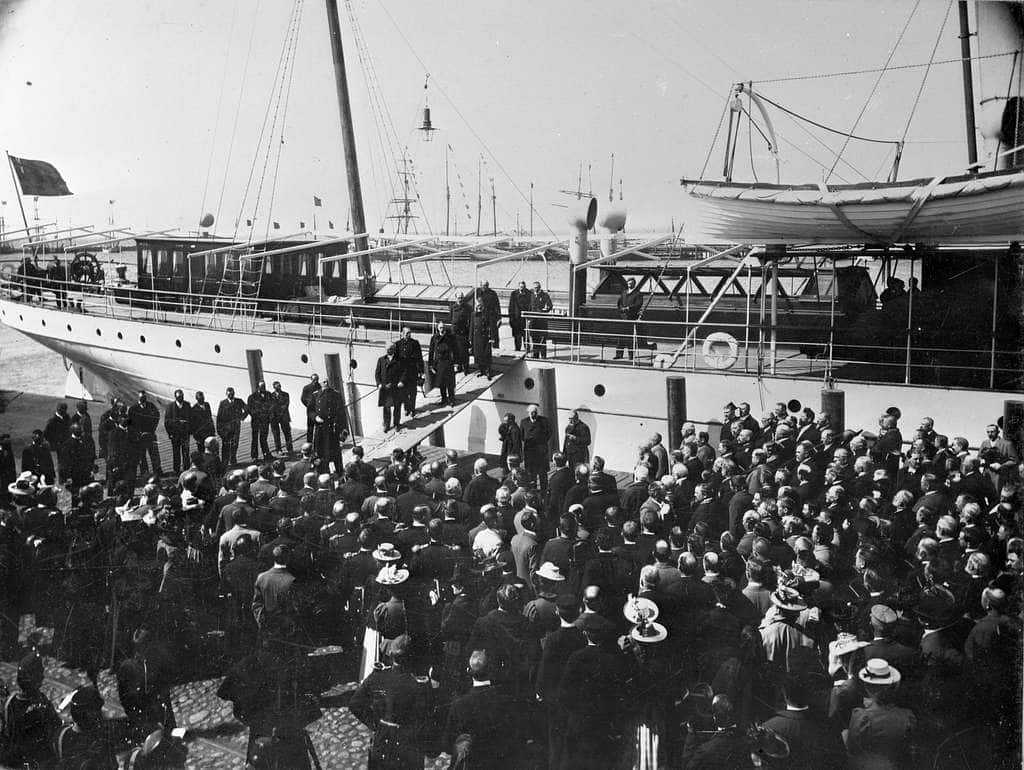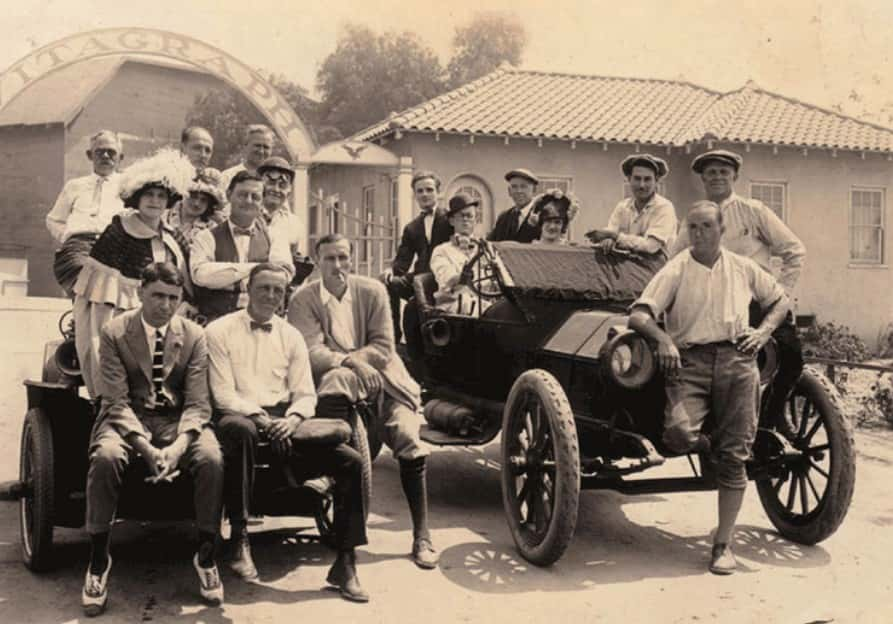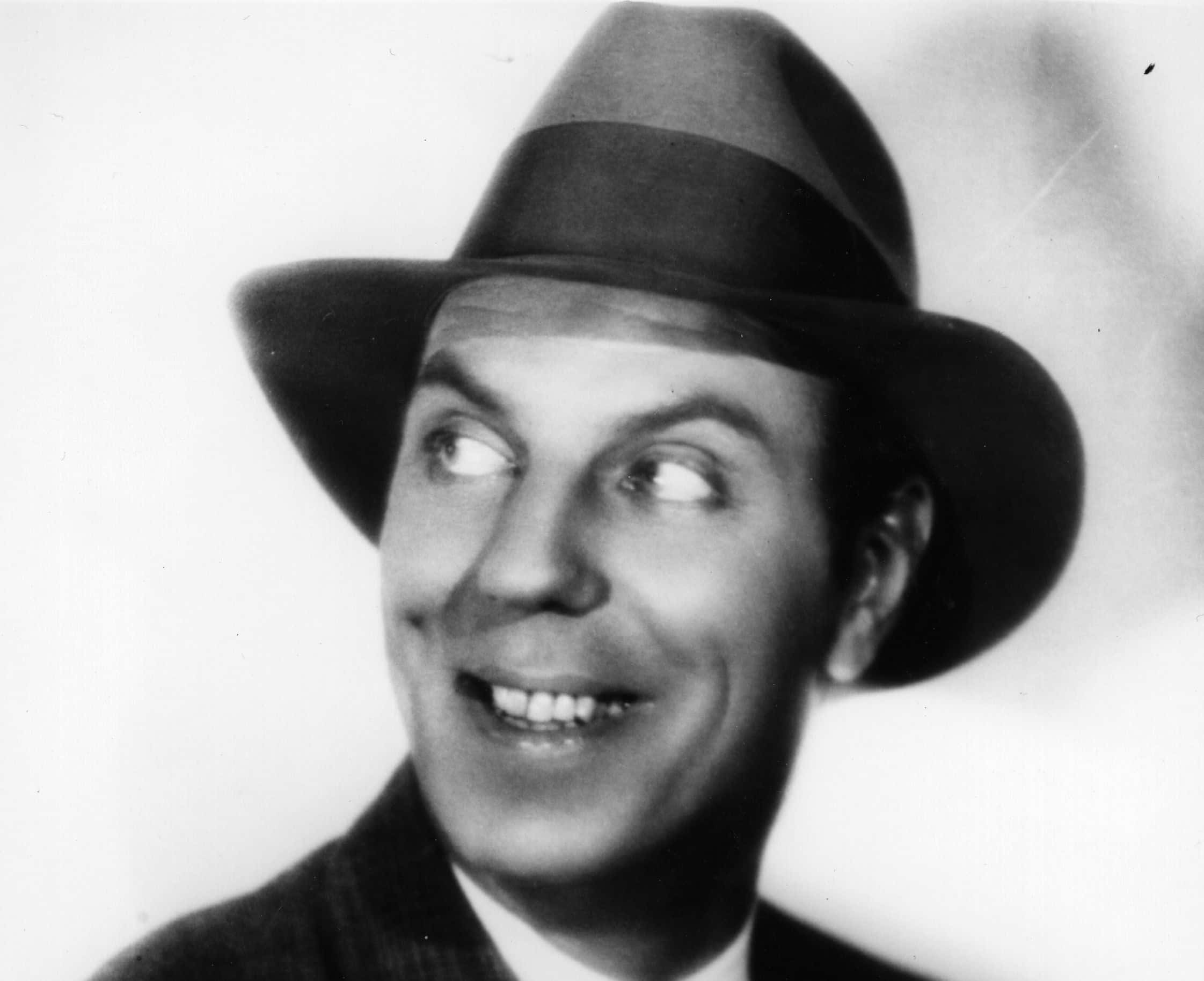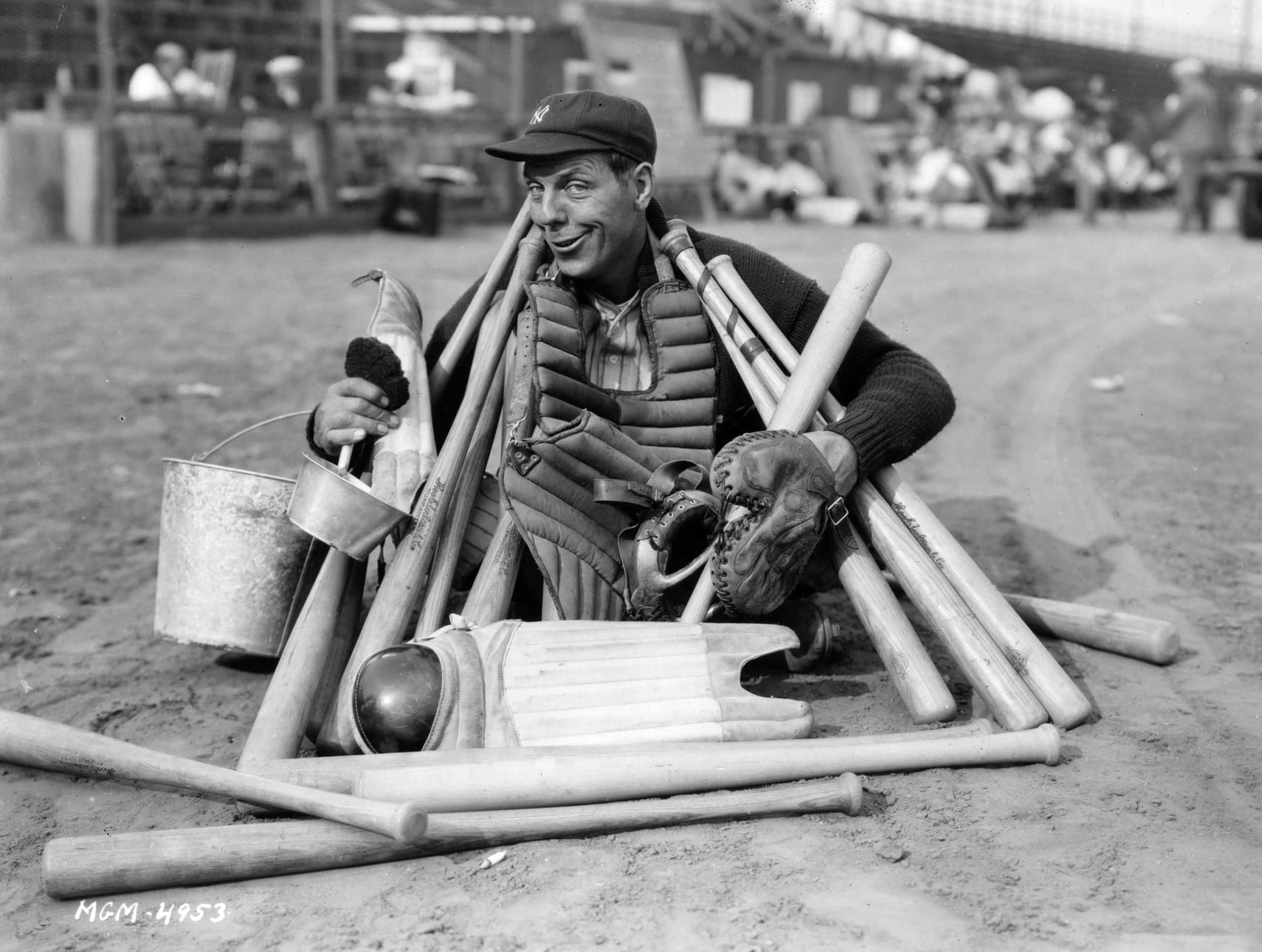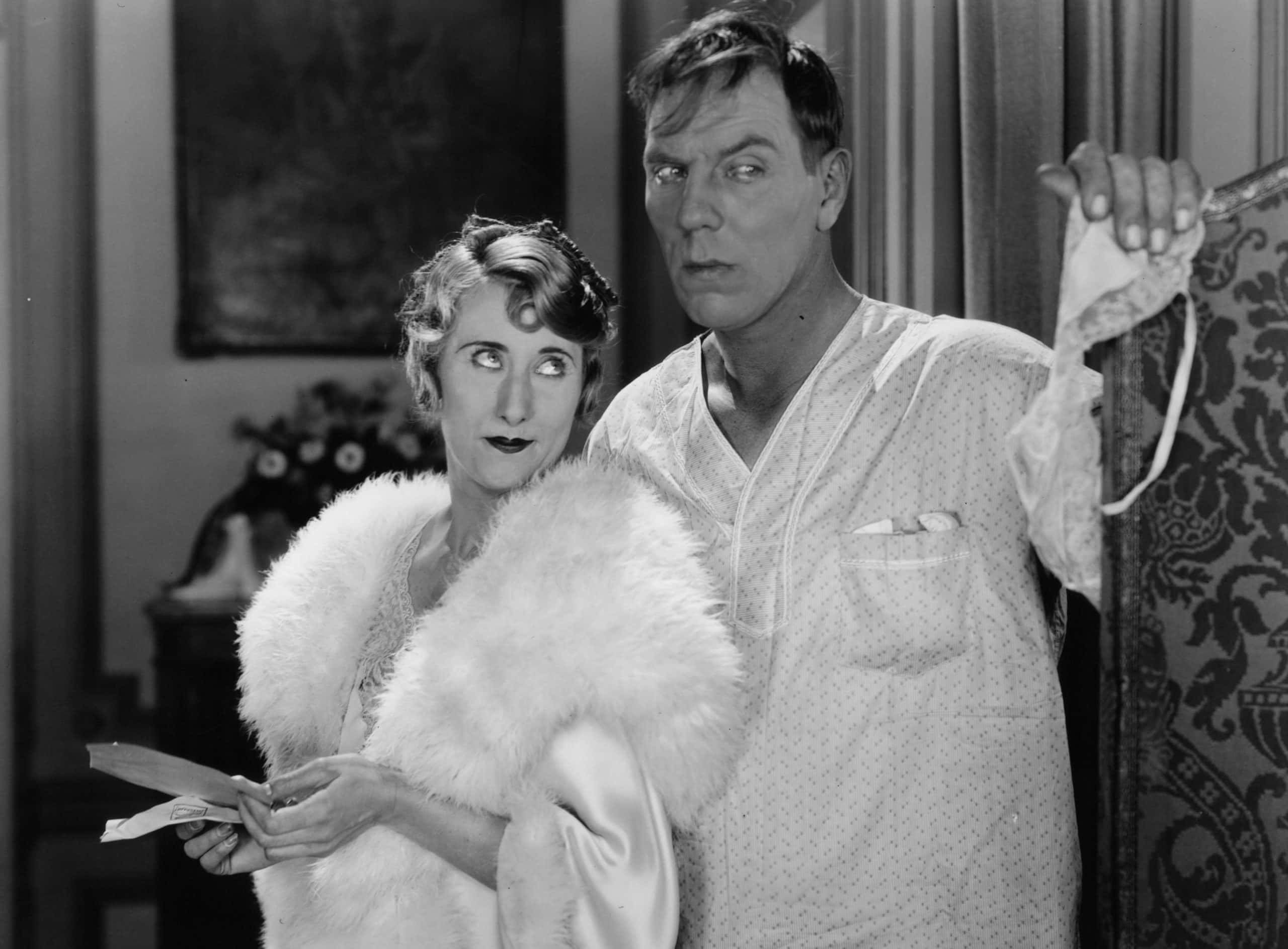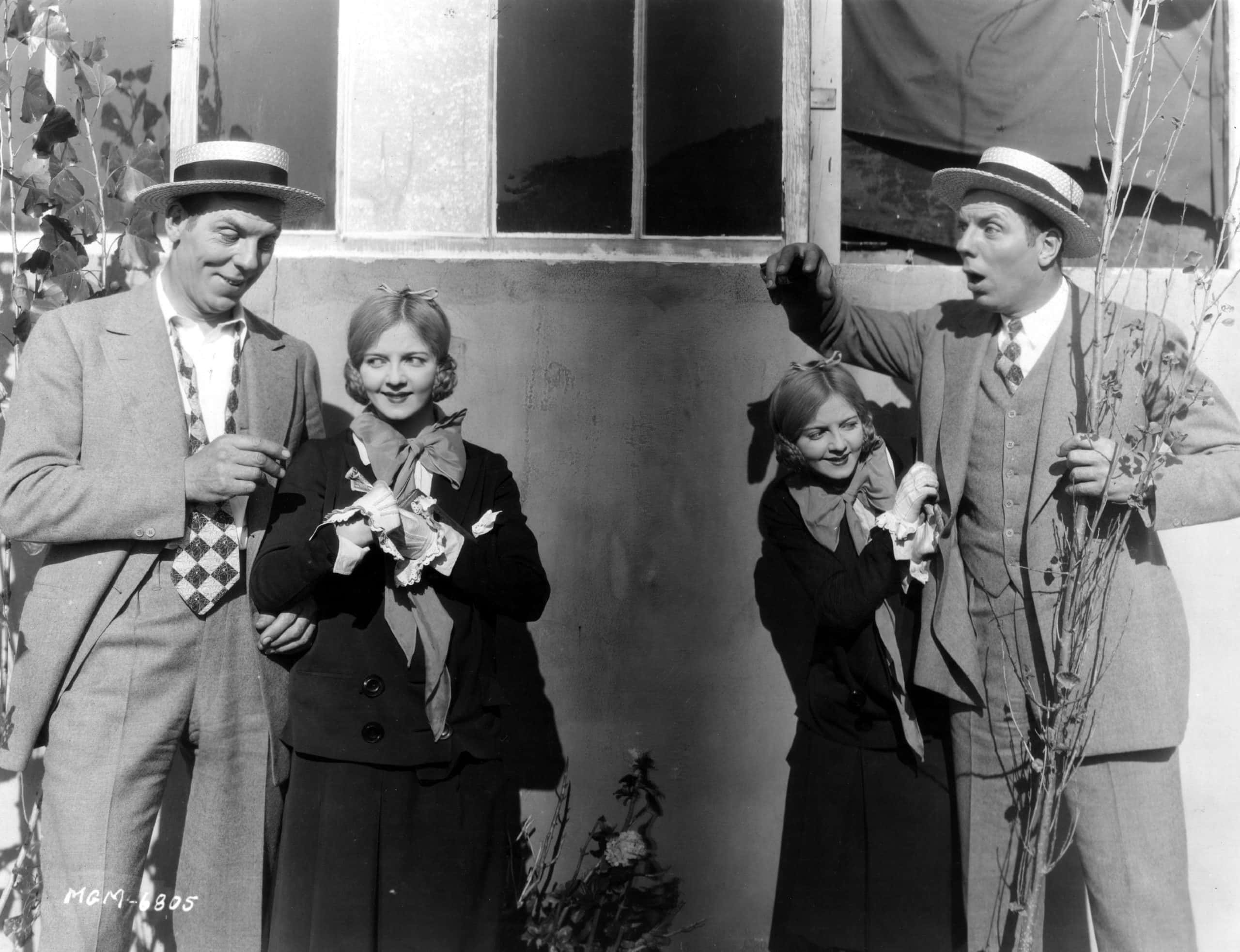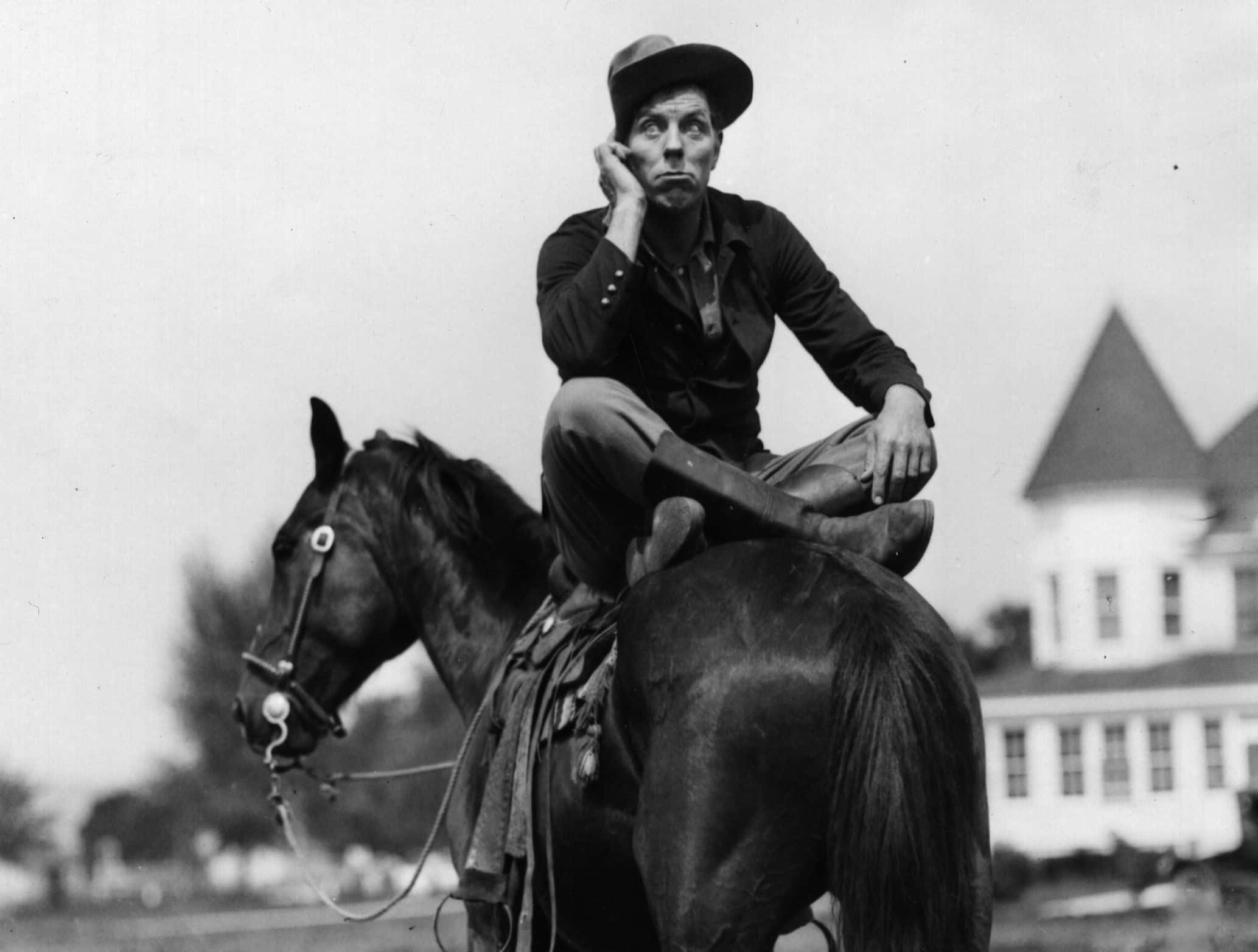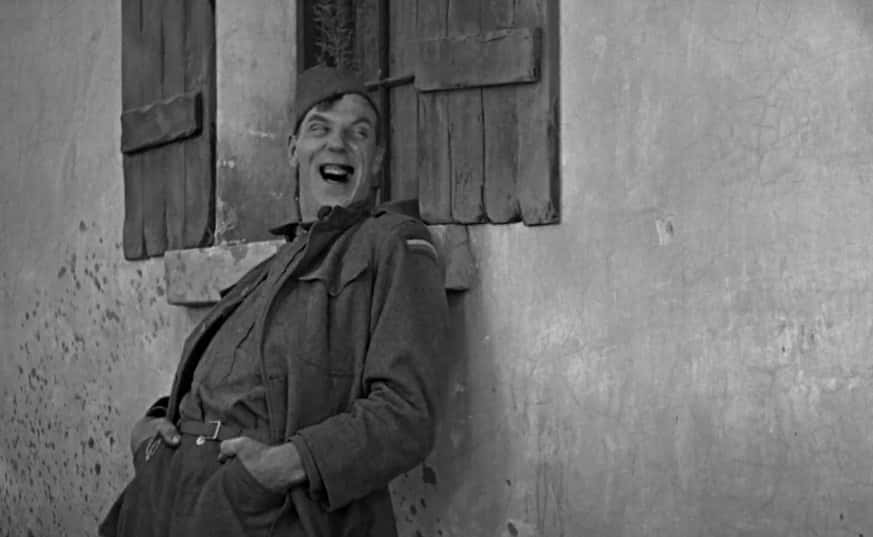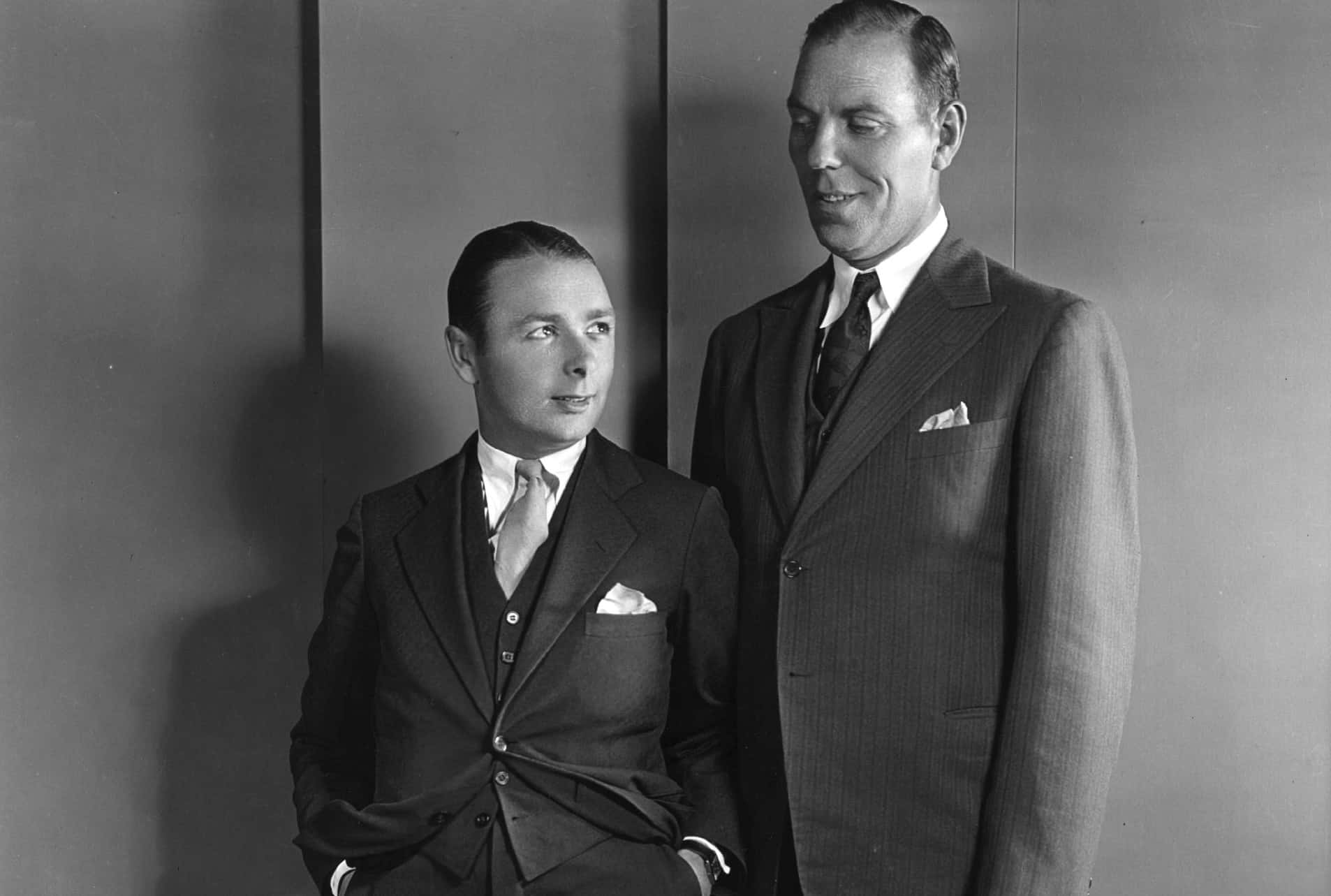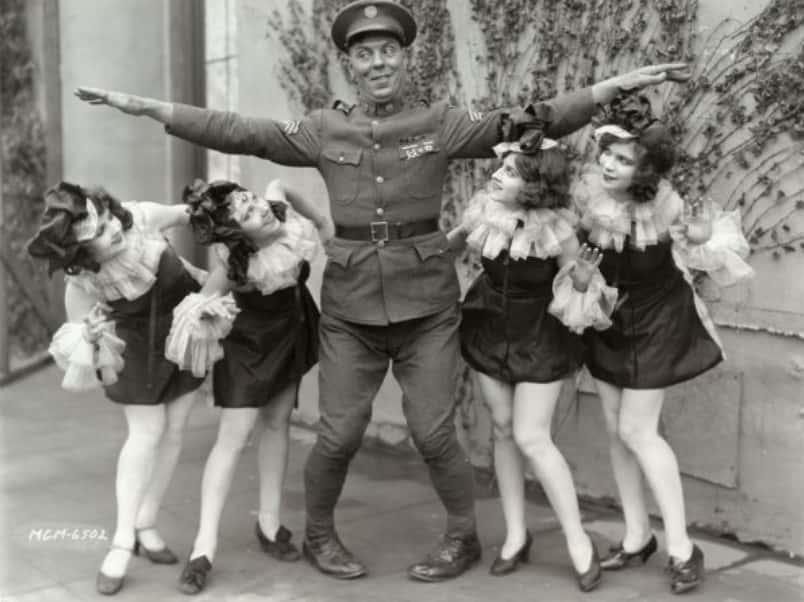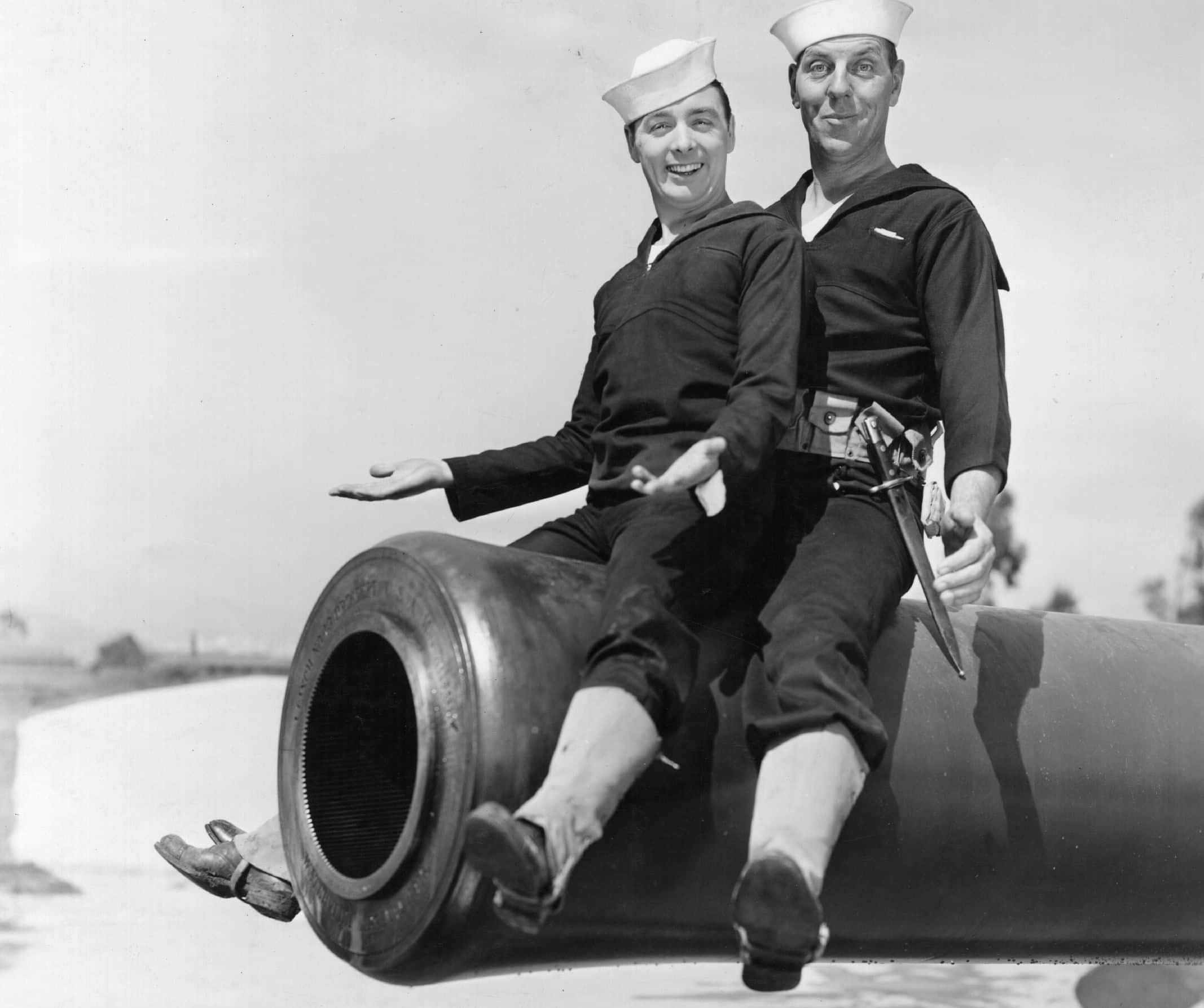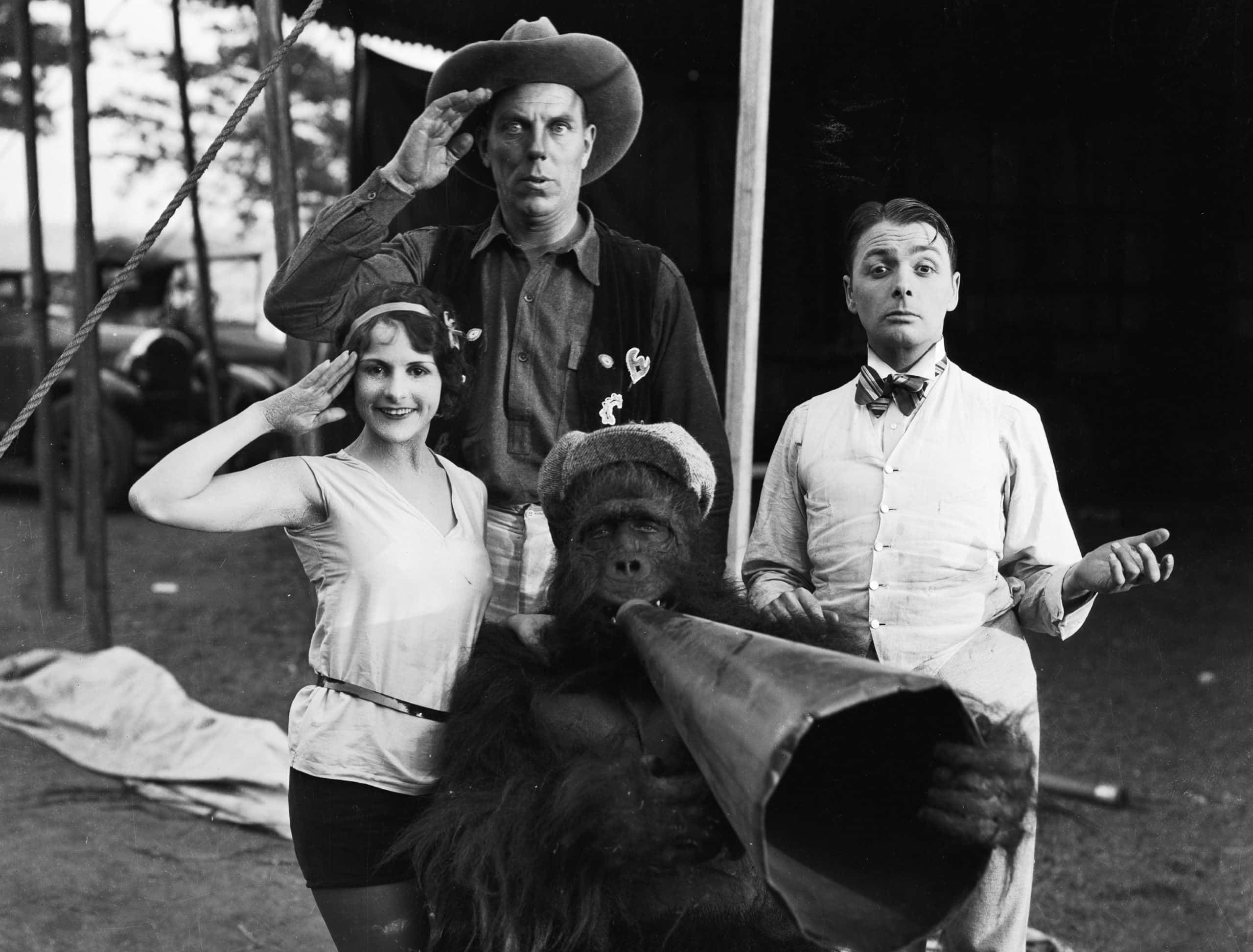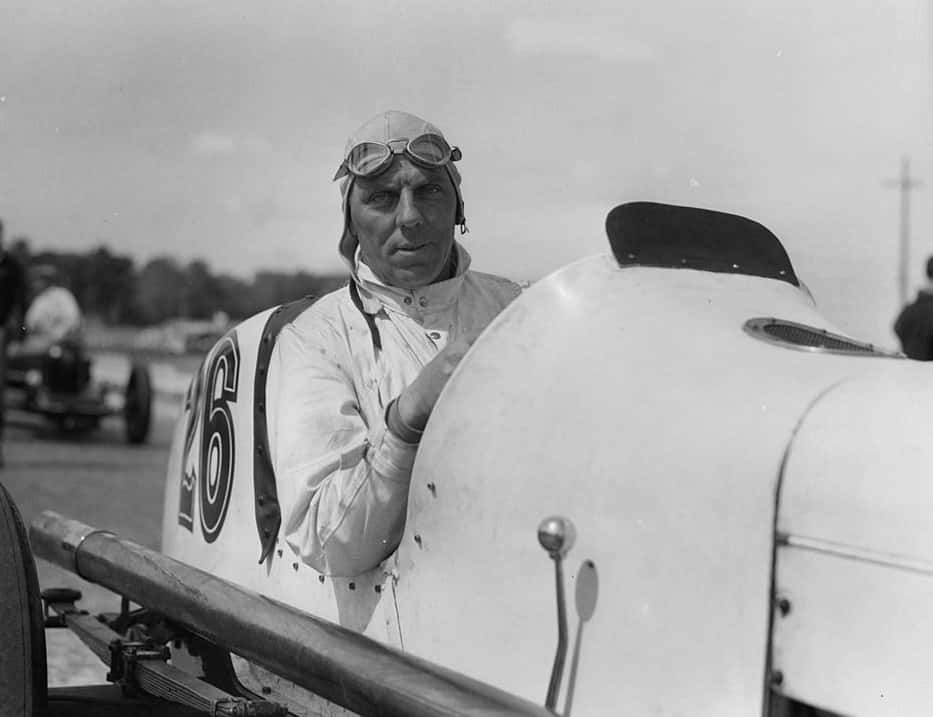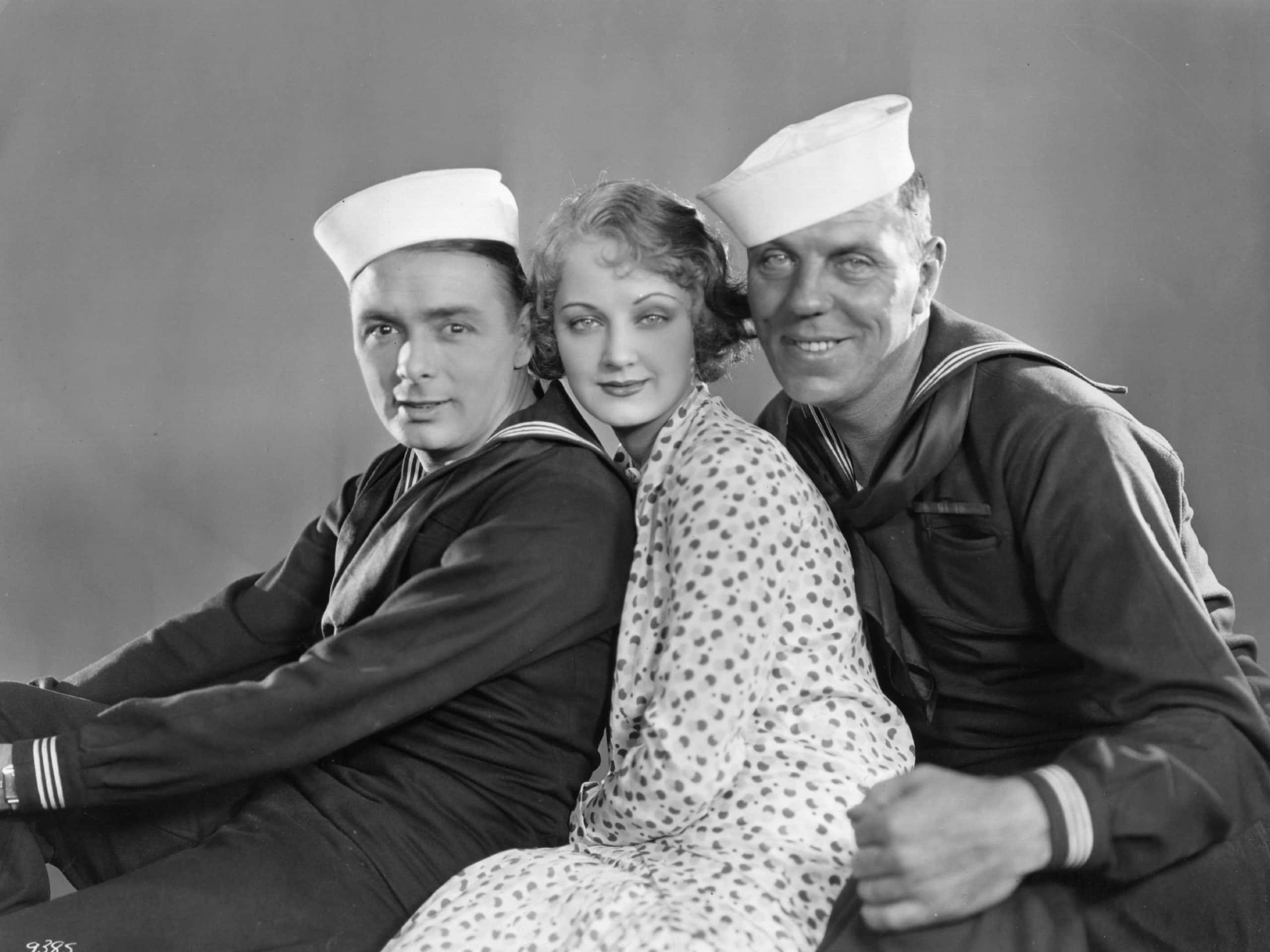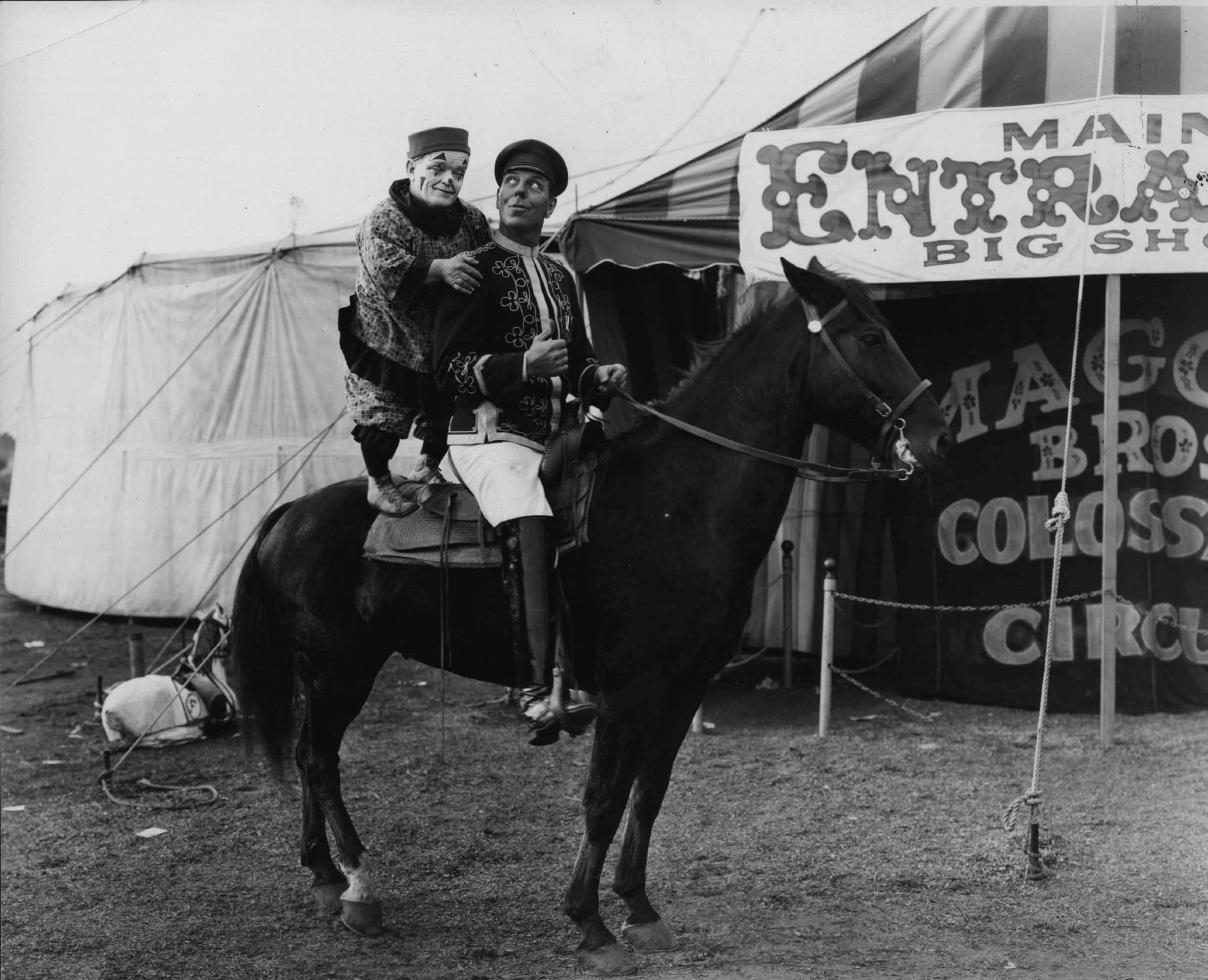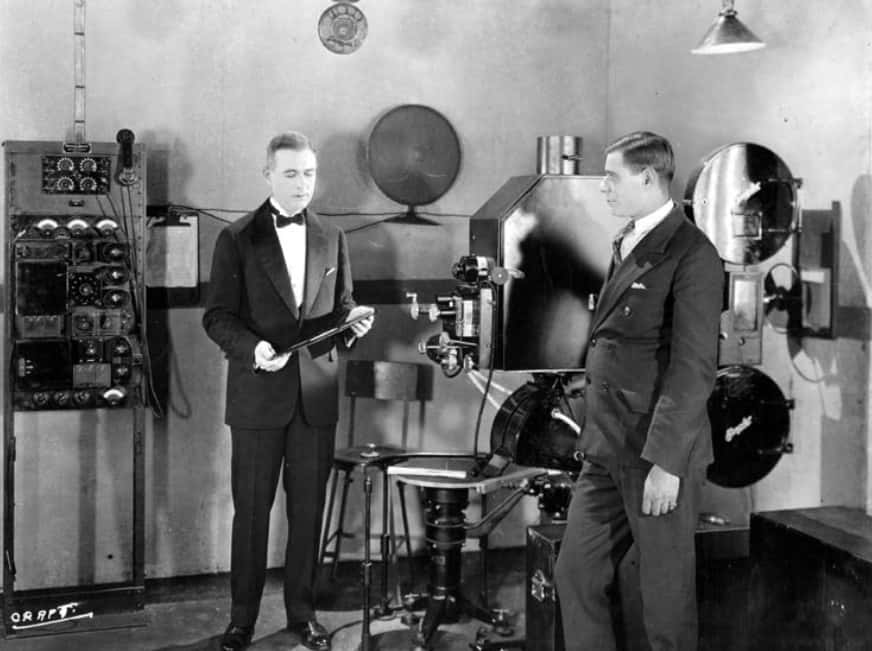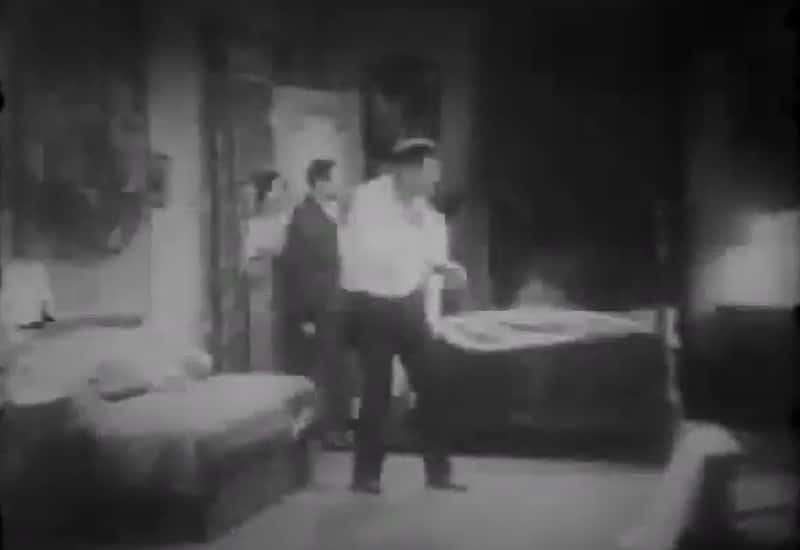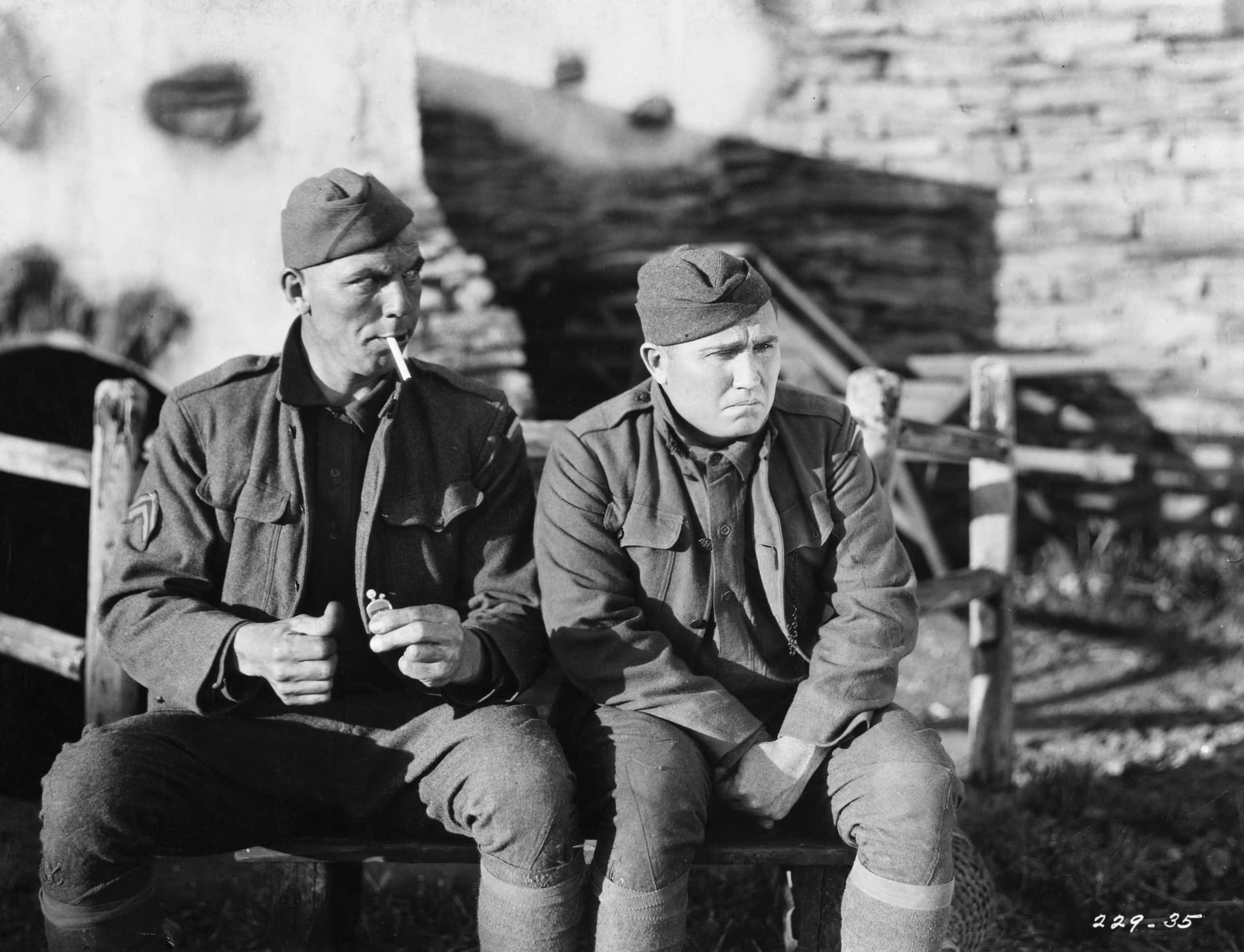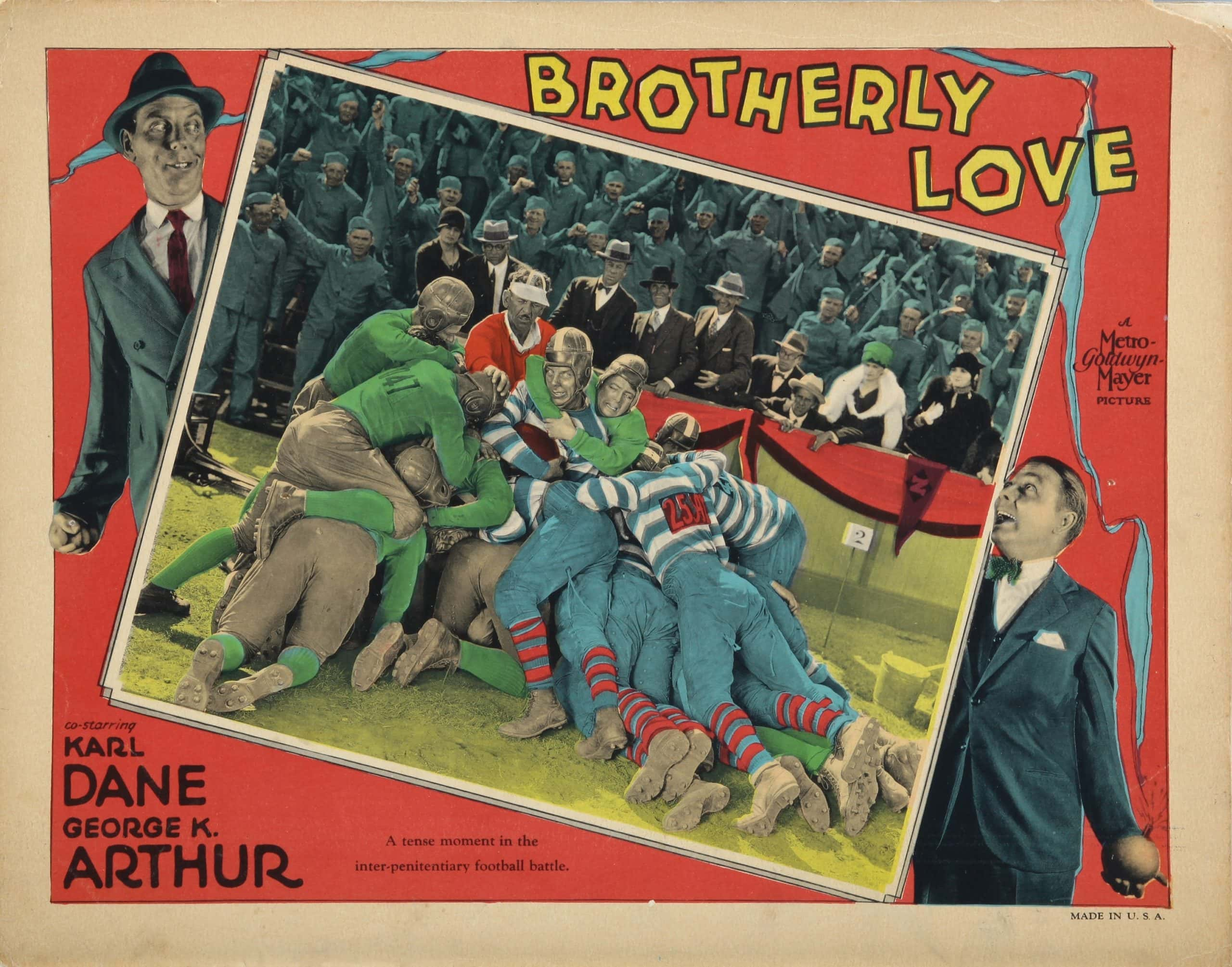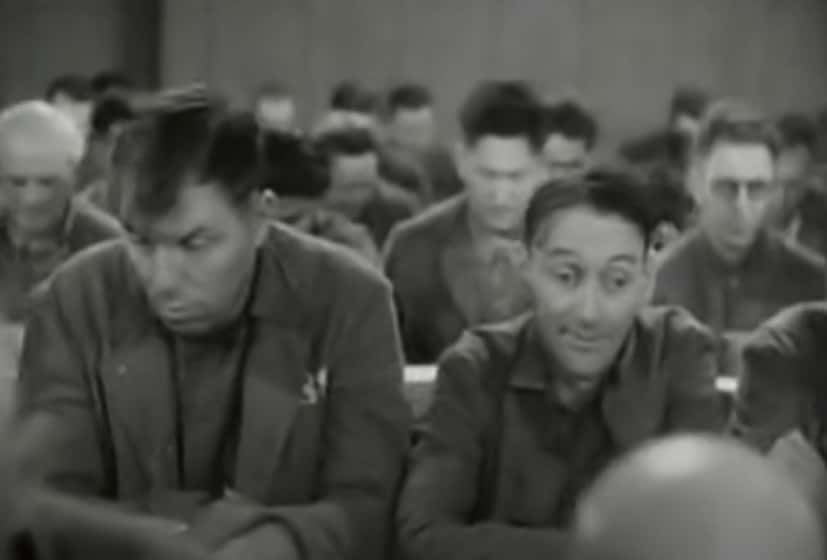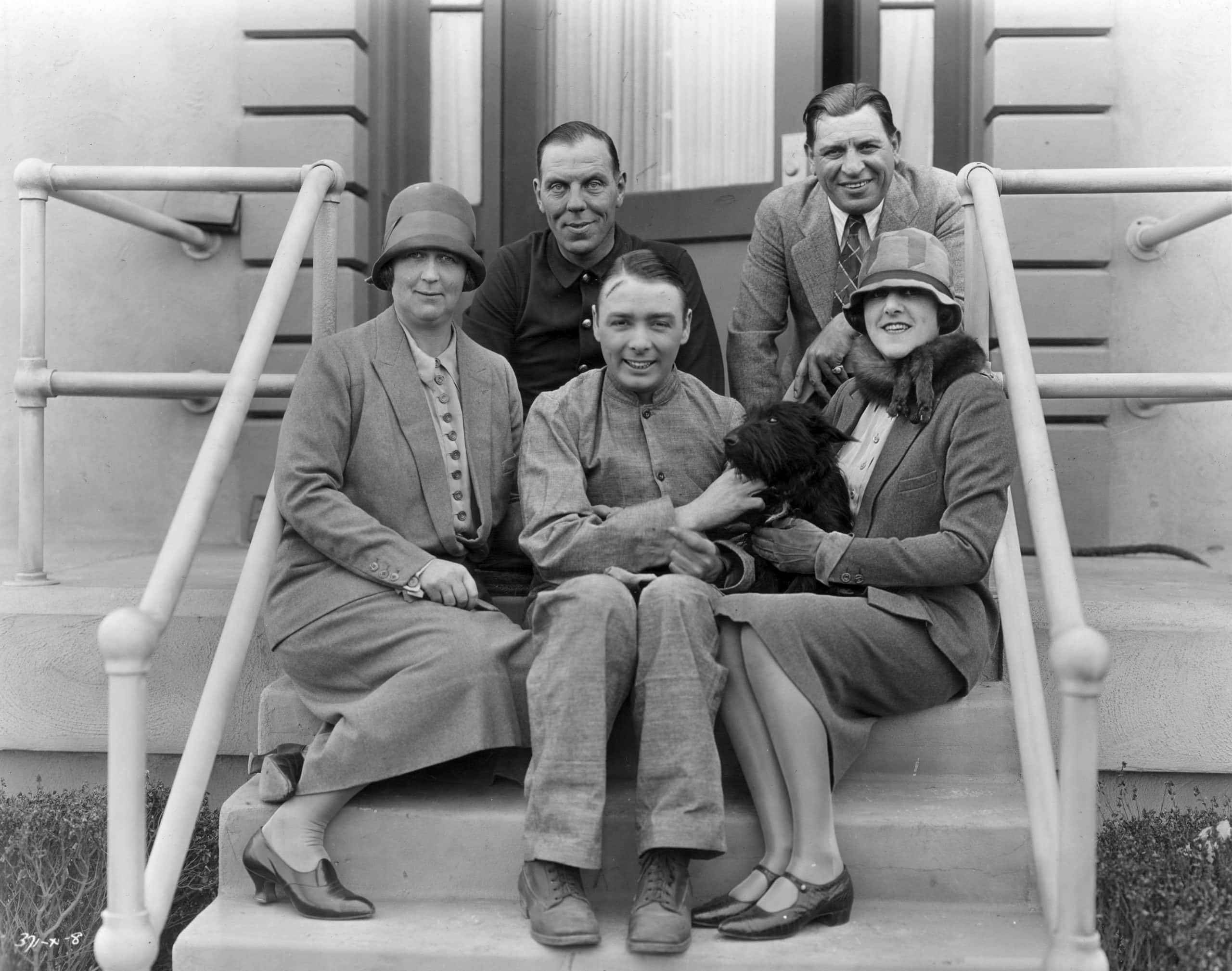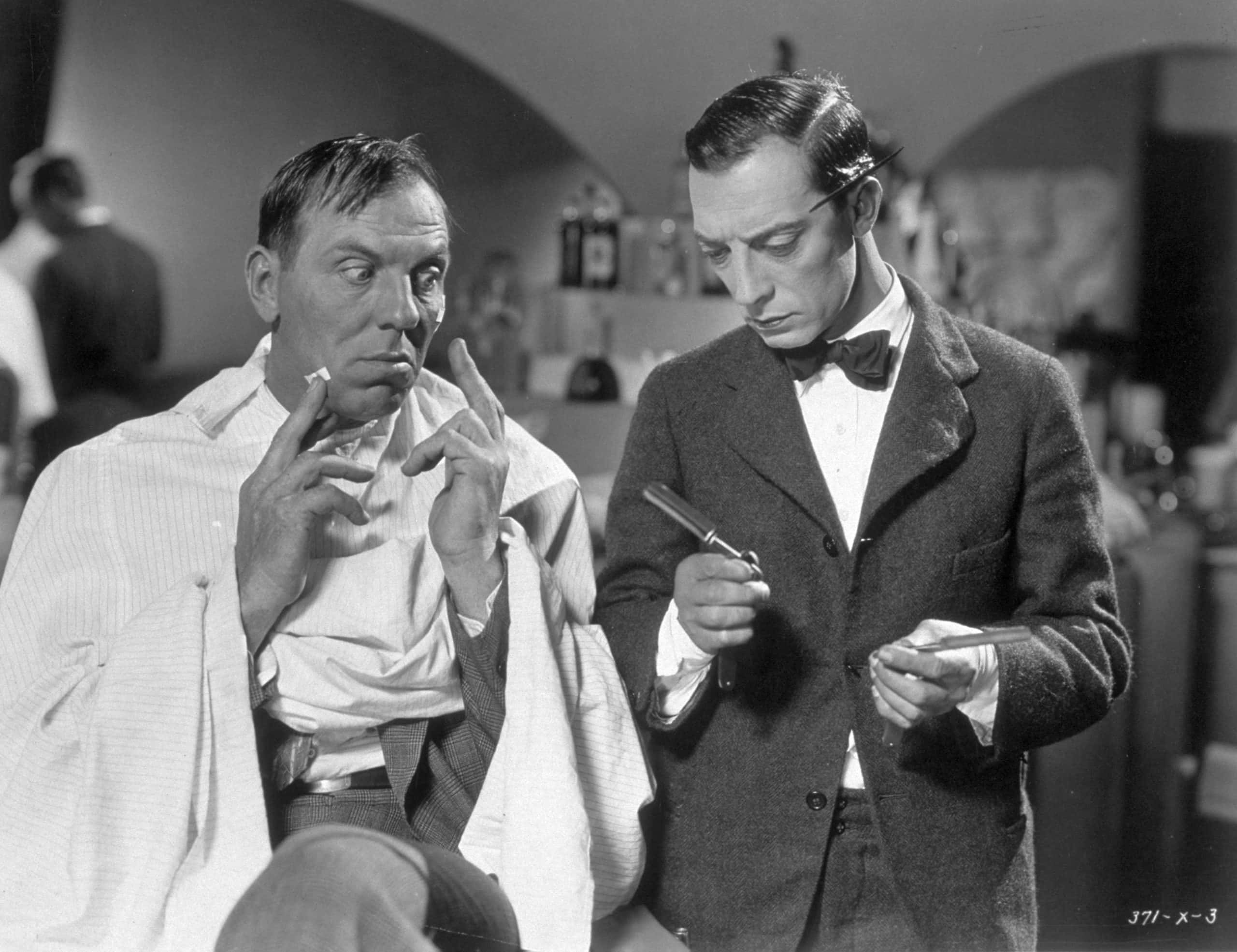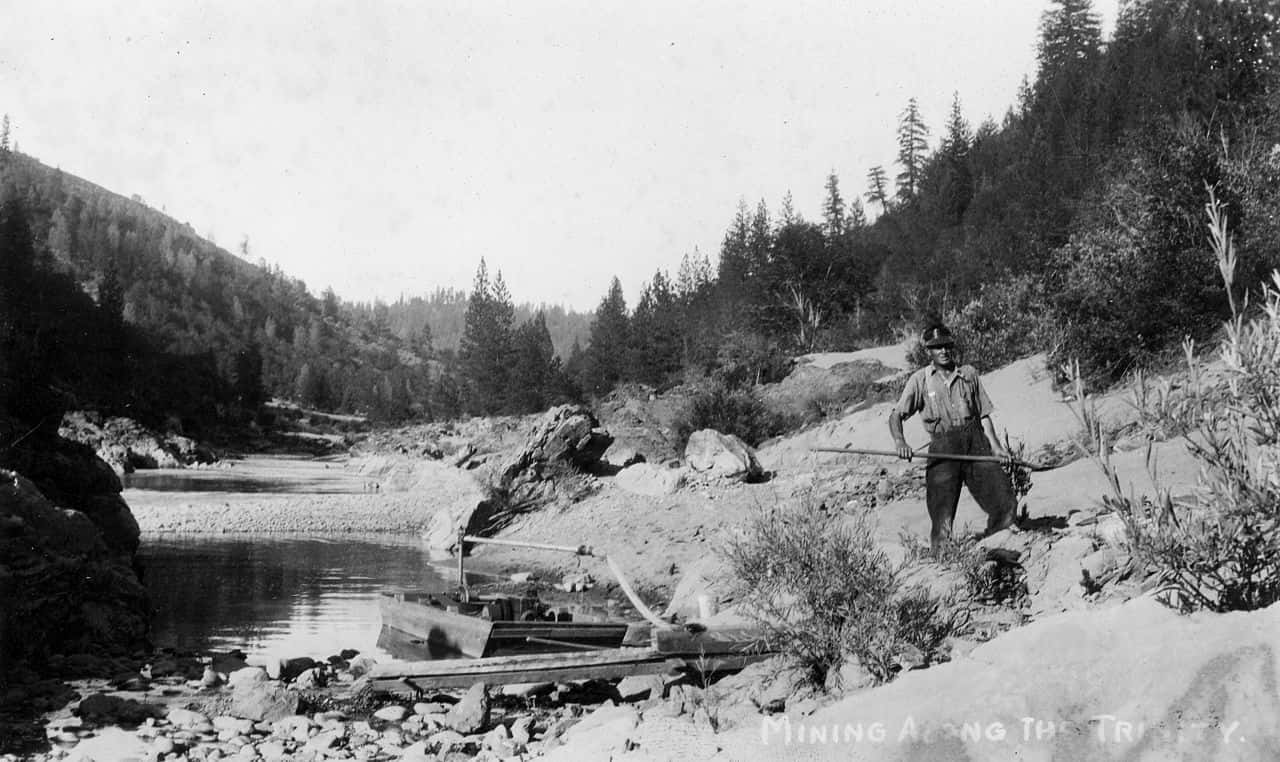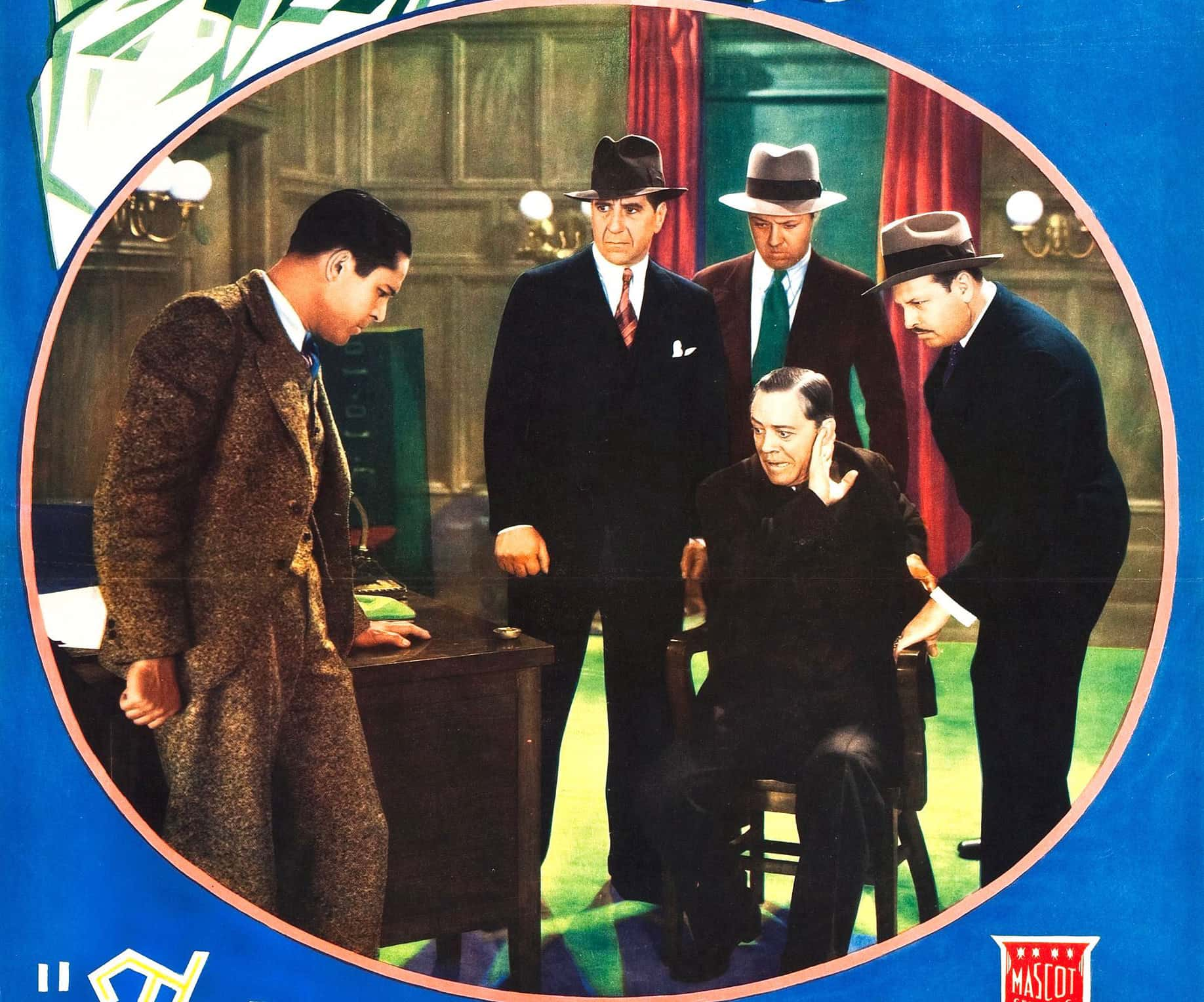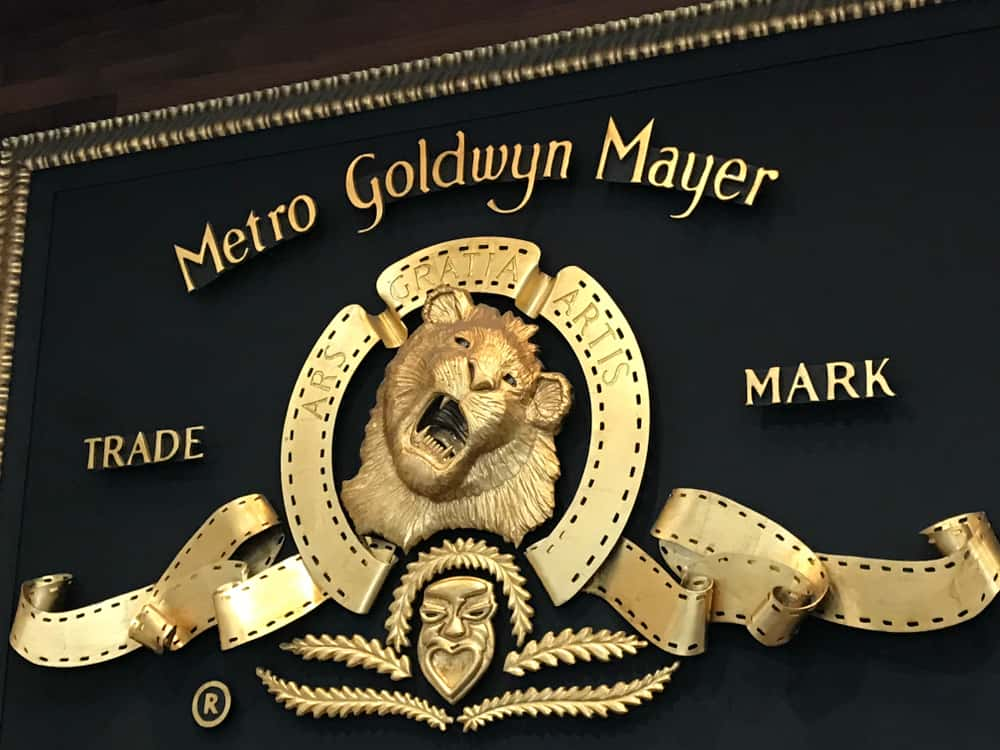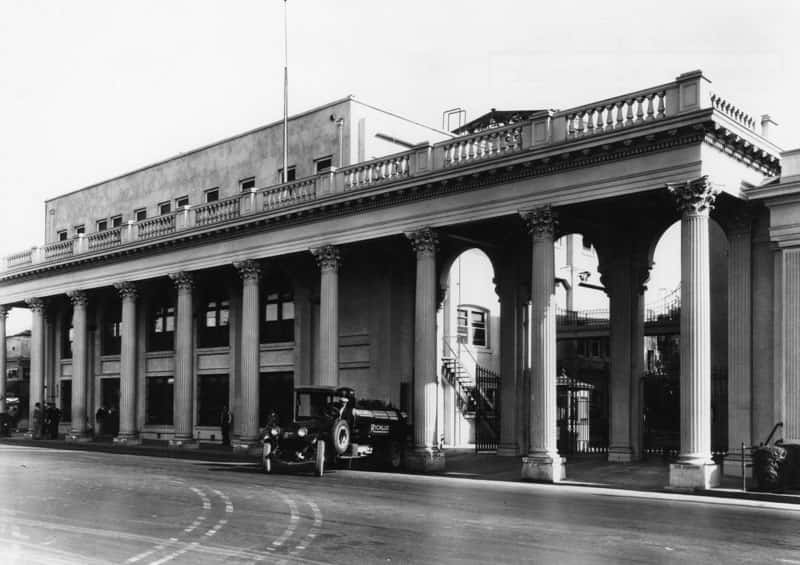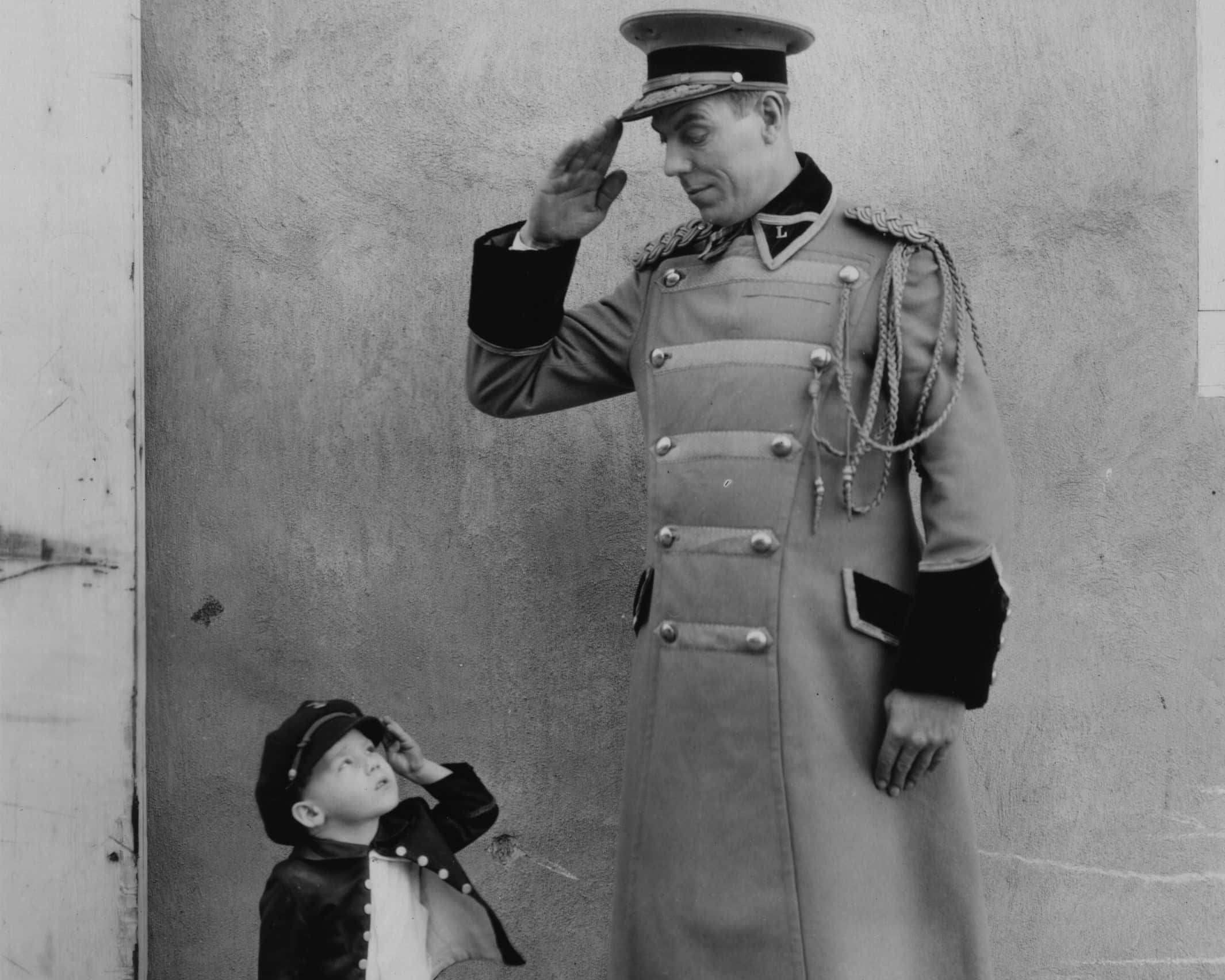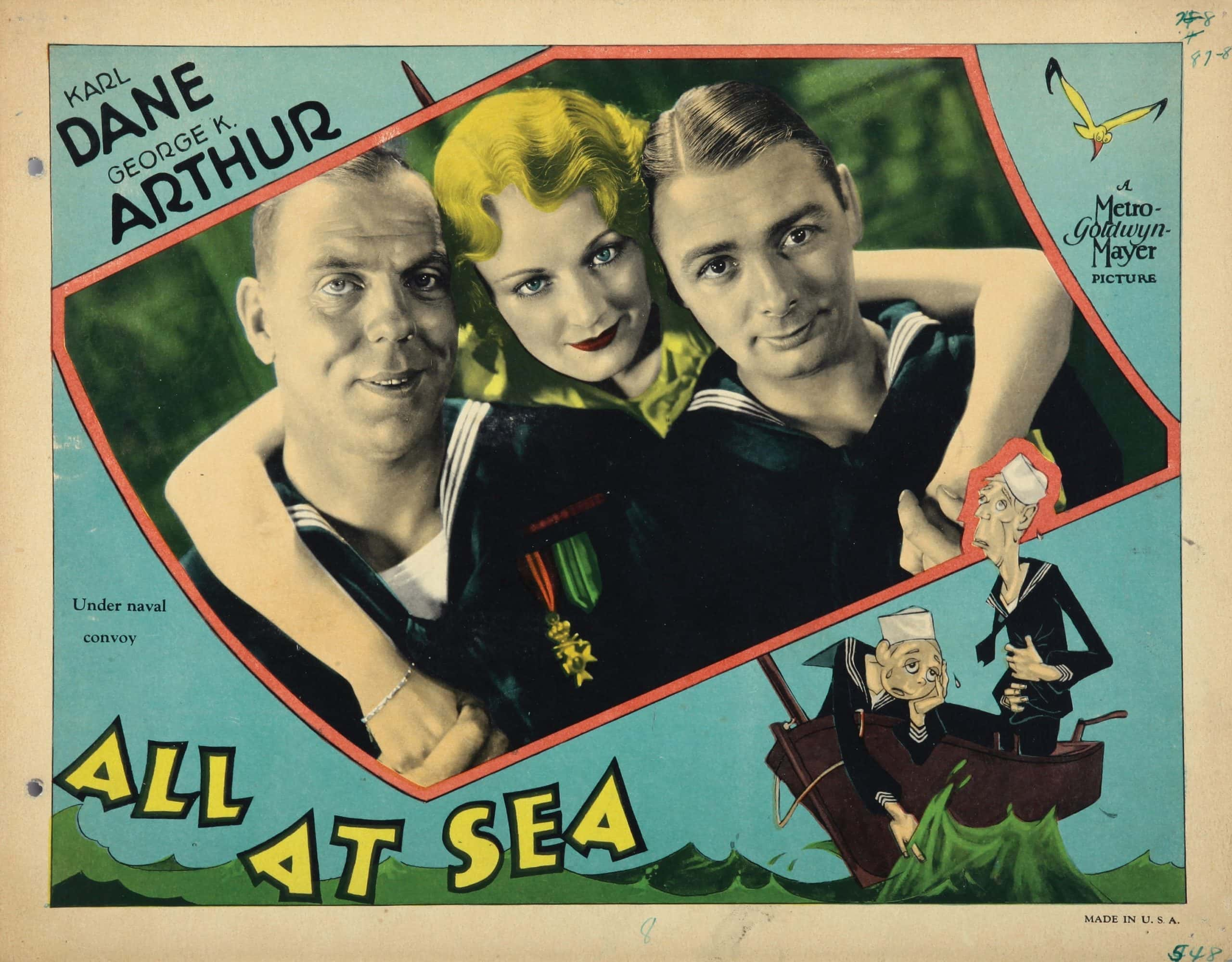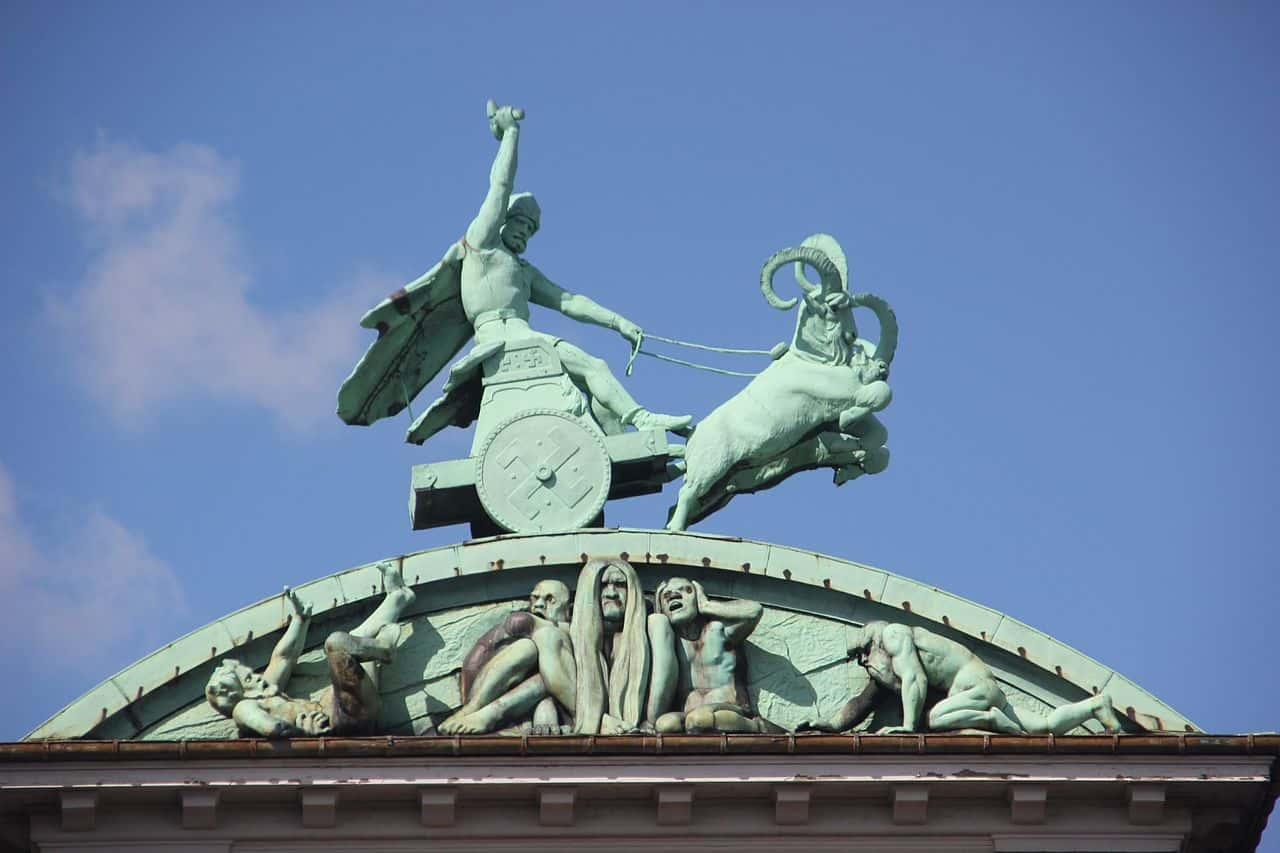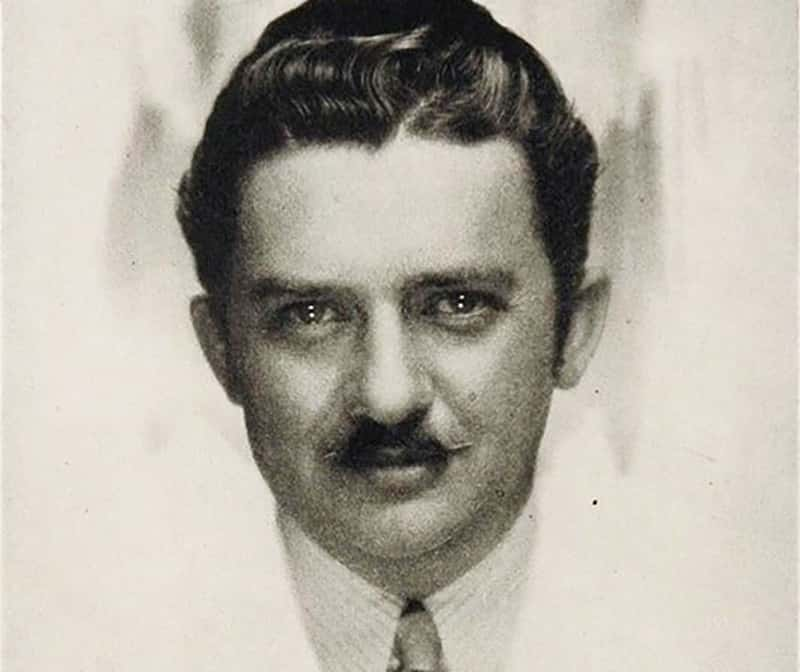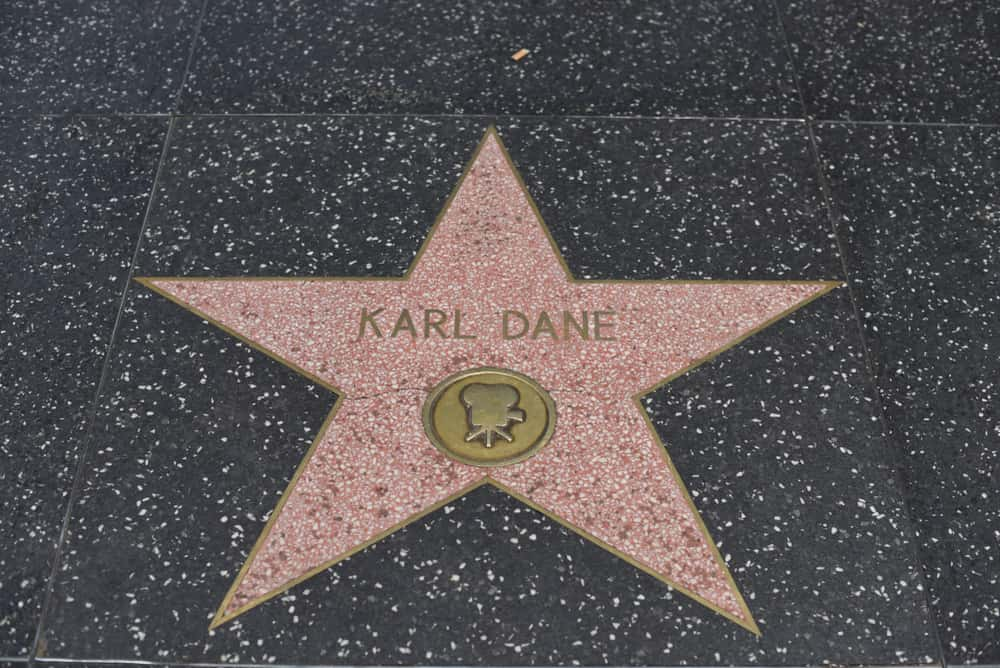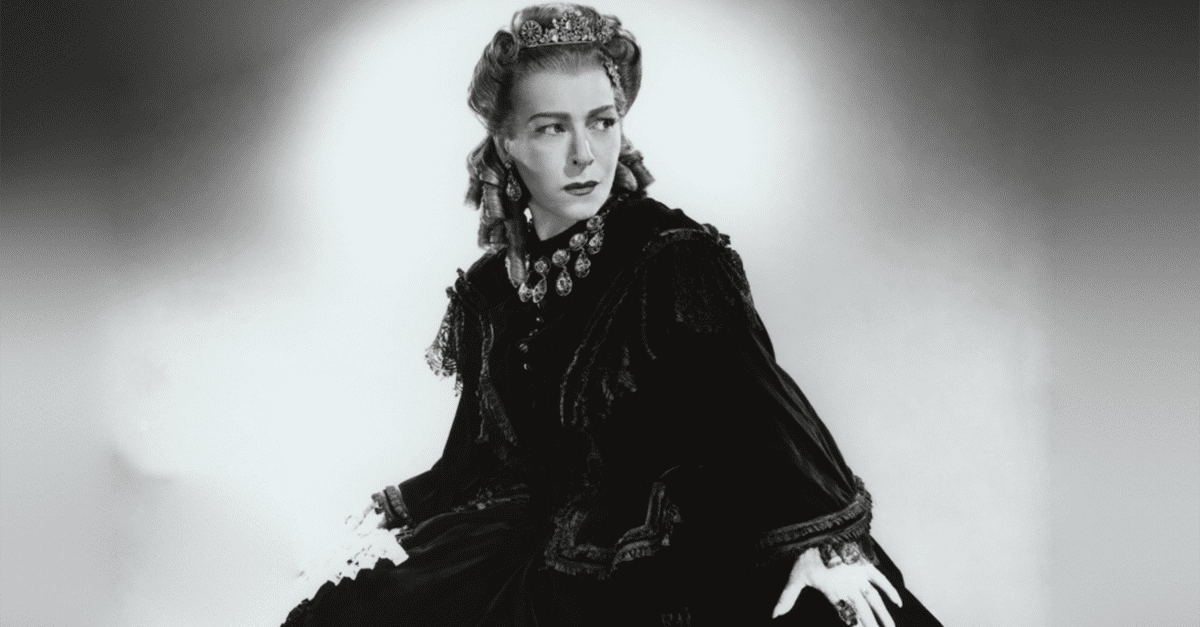For the first years of Karl Dane’s rise to stardom, movies were silent. When they started making films with sound, Dane’s thick Danish accent was near impossible to understand. The invention of talkies sparked the actor's epic and devastating downward spiral. Take a look at these facts about Karl Dane, and watch in horror as it all came tumbling down.
1. His Name Was a Mouthful
Born in 1886, Karl Dane did not have a name tailor-made for the movies—Rasmus Karl Therkelsen Gottlieb—and yet, that was exactly where he was headed. Unfortunately, before his rise to stardom, Dane faced a turbulent childhood. His parents were always at one another's throats, and before long, his entire family fell apart.
2. He Performed
When he was 17, Dane watched his parent's marriage come undone. His mother blamed it on her husband’s problems with two things: money management and drinking. However, there was one crucial thing his father did provide. He’d built a tiny toy theater, and Dane and his two brothers used it as an excuse to perform puppet shows for small audiences.
This early love of performing foreshadowed Dane's destiny—but fame and fortune didn't come easy.
3. He Needed A Real Job
Dane and his brothers loved playing with their father’s toy theater, but they needed to make some actual money. There weren’t many options for a life in show business, so the three brothers did an apprenticeship as machinists. But fate had another plan in store for them. Eventually, the government tapped on their shoulders: It was time for the three brothers to begin their compulsory service in the Danish armed forces.
Dane had no clue just how much it would alter the course of his life.
4. His Happiness Was Cut Short
By the time Dane finished his service, he had a special lady on his arm. He married Carla Dagmar Hagen, a dressmaker, on September 10, 1910. The young couple got right down to business and produced two baby boys—one in 1911, and the other a year later. Dane really took to married life and fatherhood, but the outbreak of WW1 put an end to his familial bliss.
Lucky for Dane, his service didn’t take him into battle, and he rode it out in Copenhagen. Even though he didn’t actually fight, the end of the war spurred Dane into making the most drastic decision imaginable.
5. He Left His Family
It’s not exactly clear why, but in 1916, Karl Dane said goodbye to his wife and two boys, packed his bags, and boarded the SS Oscar II. Sailing straight for America, Dane harbored big plans. However, although the plan may have been big, they weren't very well orchestrated: He boarded the boat with only $25 in his pocket and not a word of English.
He promised his wife that he'd send for the rest of the family as soon as he nailed down a steady job. I hope she wasn’t planning on holding her breath.
6. He Forgot His Loved Ones
Karl Dane found work as a mechanic in Lincoln Nebraska, and then in New York City. He had a friend with him and the two worked hard at setting up a life. Sadly, it’s not clear how much Dane was actually thinking about his family. Even worse? He still hadn't made enough to invite them over. While struggling to make his mark in America, Dane remembered an old passion.
He still loved to perform—and his piercing gaze certainly made him stand out from the crowd.
7. He Got A Break
Just a year after arriving in America, Dane was living the dream—well, sort of. He'd snagged a small role in a silent movie made by Vitagraph Studios. Back then, an actor with a small role received three dollars a day for his trouble. This was a big break for Dane because, as a mechanic, he earned the same amount every week. With those kinds of numbers, Dane said goodbye to fixing cars and hello to making movies.
And best of all, because the films were silent, Dane’s poor English didn’t matter one bit...at least, for now.
8. He Was Type Cast
Since the end of WW1, America had more or less soured on all things German. Because of this, there was a surge of Anti-German films. Maybe it was Dane’s very European features that helped him get the role of Chancellor von Bethmann-Hollweg in 1918’s My Four Years in Germany. Roles like this kept coming Dane’s way and he kept accepting them. In fact, he soon became the film industry’s go-to for nasty German Chancellors.
But in the glow of this sudden success, there was still one thing that burned at the back of Dane's mind.
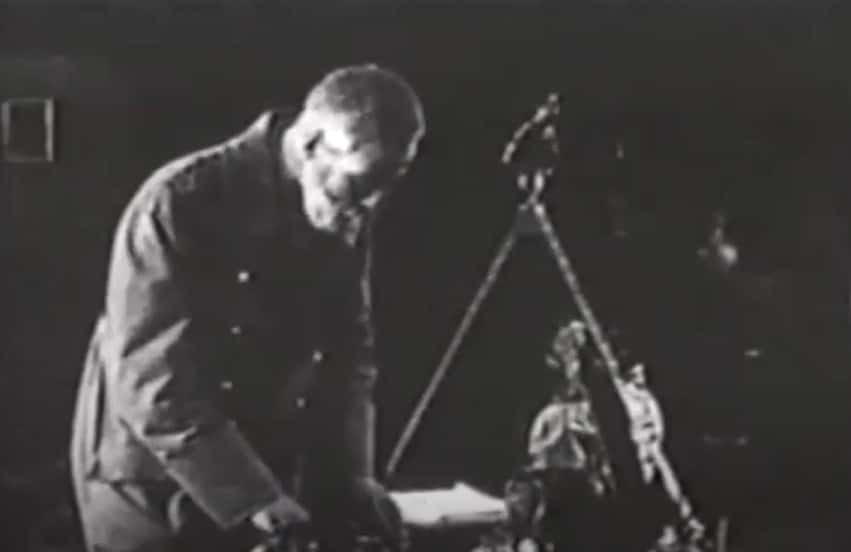 My Four Years in Germany (1918), Warner Brothers
My Four Years in Germany (1918), Warner Brothers
9. He Wanted Them Back
With some movie-making success under his belt, Dane began to think family back in Denmark. He finally had the money and the necessary security. It was finally time to invite his family to America. In 1918, he reached out to his wife and asked her to bring the boys. He envisioned a grand reunion. But the answer he received wasn’t at all what he expected.

History's most fascinating stories and darkest secrets, delivered to your inbox daily.
10. He Had A Choice
You’d think that Dane’s wife would be literally chomping at the bit to join her now semi-famous movie star husband in America. Well, her health had taken a downturn, and she didn’t want to risk the trip to America. Dane had a choice: return to Denmark to be with his wife and children, or stay and pursue film acting in America. Care to guess what he chose?
11. He Was Selfish
Karl Dane ended up choosing America over Denmark, and as a result, he divorced his wife in 1919. Dane continued to get offers for film roles and he continued to take them. Dane had amassed quite a career when he met Helen Benson—an alluring immigrant from Denmark's neighboring country Sweden. But something happened when he met Benson. Whatever it was, it made Dane switch tracks in a shocking way.
12. He Went Country
Dane hadn’t left his career in show business for his wife and children, but he did do it for his new Swedish girlfriend. For some reason, once he met Benson, Dane stopped acting and went in a completely new direction: He became a farmer. That’s right, Dane gave up the glamor of the pictures, and moved to Van Nuys, California to open up a chicken farm.
It was a bizarre choice that would ultimately end in tragedy.
13. He Lived The Dream
Life on the chicken farm was very productive for Dane and Benson—it was also productive in the bedroom. Just two years after getting married, Benson was pregnant. It looked like Dane was set in his new life: an expansive property, a child on the way, and that warm California sunshine. It was any man’s dream—until it all came crashing down.
14. He Lost Them
Benson went into labor on August 9, 1923, but things quickly went wrong. Dane stood in the waiting room, horrified that he would lose his child. He should’ve been focusing his concern on something much worse: losing both his child and his wife. Sadly, this is exactly what happened. Dane left the hospital shattered and utterly alone. Drowning in grief, Dane's future seemed terribly uncertain.
15. He Made A Hit
Dane couldn’t face the chicken farm without his beloved Benson. Lucky for him, fate served up a blessing—a way back into acting. He bumped into an old friend from his acting days, and soon, Dane was in front of the camera again. His first film, The Big Parade, was a huge hit. In fact, it ended up being the second highest-grossing silent film ever.
It clocked in at $6.5 million at the box office—that’s over a hundred million in today’s money. Dane was back in show business, but there was still something missing.
16. He Rebounded
Even though Dane’s career was thriving, the memory of his deceased wife still haunted him. Feeling lonely, Dane did a classic rebound. In 1924, he met and married Emma Awilda Peabody Sawyer, who was a telephone operator and seven years older than him. But if Dane thought that he'd finally found his "happily ever after"—he was sorely mistaken.
17. He Finally Got It
Sadly, Dane's marriage to Emma didn't even last a year. But where his love life tanked, his professional life soared. Dane followed up the huge success of The Big Parade with another major picture. The film was 1926’s The Son of the Sheik and it featured legendary heartthrob Rudolph Valentino. The film was notable for a few reasons. Firstly, for Valentino, it was the beginning of the end.
Sadly, the film became his last picture when he tragically passed during the promotional tour. However, for Dane, it was a solid win. His performance led him straight to what he'd been craving.
18. He Had A Funny Bone
Dane finally reached one of his greatest dreams: He landed a contract with MGM Studios. However, once he started working for them, they noticed something they hadn’t seen before—his humor. Dane picked up several smaller roles in very big films like The Scarlet Letter. In these films, Dane was often the comic relief in an otherwise dramatic film. He was tall, lanky, and extremely awkward.
MGM studios loved his effortless humor—and they knew just how to capitalize on it.
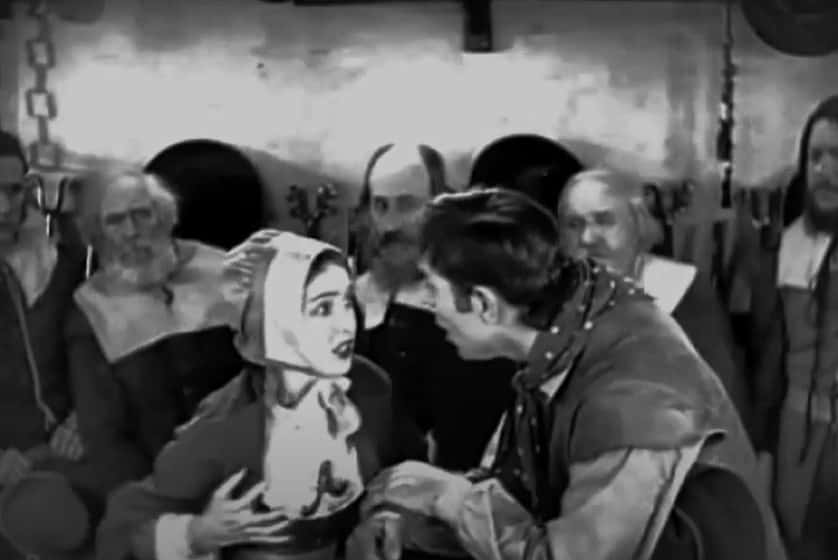 The Scarlet Letter (1926), MGM
The Scarlet Letter (1926), MGM
19. They Matched Him Up
MGM had another funny actor on their roster, Englishman, George K. Arthur. The studio had the great idea of teaming the two comics up together. You see, at the time, comic duos were all the rage—think Laurel and Hardy. MGM put Dane and Arthur together to keep up with the other studios. But what were they going to do with them?
20. They Were A Hit
Dane’s first feature with Arthur was 1927’s The Rookies. This movie was what producers even today are looking for in a film: a box office smash with a B movie budget. MGM soon realized the financial potential of Dane and Arthur. They saw that they could churn out the movies for a song and then laugh all the way to the bank. To solidify the duo’s success, MGM gave them a rather unoriginal nickname—Dane and Arthur.
But while their moniker may have been plain, their performances lit up the silver screen.
21. They Were Opposites
All the successful comic duos of the time had something in common: they were different from one another. So, what was Dane and Arthur’s distinction? Dane was over six feet tall—a towering, klutzy mess. Arthur, on the other hand, was just 5’6” and quite suave. Just seeing the two men on screen created heaves of laughter at the cinema.
Dane was on top of the world, and after being alone for so long, he was finally ready to share it with someone special.
22. He Skipped A Step
Dane was making good money working alongside Arthur—$1500 per week. At the height of his career, he met and fell in love with Thais Valdemar, a Russian actor and dancer. Dane was eager to start a new relationship, and he asked Valdemar to move into his Beverly Hills mansion. Dane was beyond happy and seemed to really love introducing his new wife to his many co-workers and fans. However, there was just one huge problem.
23. They Were Role Playing
As it turns out, Thais Valdemar wasn't actually Karl Dane's wife. Instead, the couple just played the role of a married couple, living as common-law spouses instead. Living in sin was risqué at the time, but Dane couldn’t come up with any reason why they should take a stroll down the aisle. For the actor, it seemed like the perfect arrangement—until it got complicated.
24. They Parted Ways
Dane had seen no reason to make an honest woman of Valdemar. As the bread earner in the household, he was thinking about one thing and one thing only: himself. This all came to light when Dane and Valdemar decided to call it quits. Valdemar moved out in November 1928, and soon realized her huge mistake. With no marriage contract, Dane didn’t owe her a red cent.
Dane thought he'd made the great escape, but it wasn’t going to be that easy.
25. He Got Sued
It was the late 1920s and common-law status meant pretty much nothing. Sure, Dane was unhappy about losing a girlfriend, but at least he didn’t have to pay her any alimony. Valdemar, however, wasn’t about to let it end like that. She decided to sue Dane for something called a breach of promise. Wait, is that even a thing? Back in the day, it was something women could use when their fiancés flopped.
Well, to his dismay, his angry girlfriend came at him with everything she had.
26. They Were Shacked Up
Valdemar was angry and wanted a whopping $75,000 of Dane’s hard-earned money. The judge in the case of Dane versus Valdemar looked at all the evidence regarding the couple’s lives together. Luckily, the court didn’t see the case the way Dane's girlfriend did. In its view, they had no plan to marry, they were simply shacked up. Valdemar received no sympathy from the judge and she left the courtroom none the richer.
Dane had got off scot-free—which may have inspired him to finally make the USA his permanent home.
27. They Added Sound
Two momentous things happened in 1928. Dane became a USA citizen, officially changing his name to Karl Dane. And then there was the invention of the talkies. Until then, films were silent and they used cards to express any dialogue that the director or writer thought the audience needed to know. Of course, this would revolutionize cinema forever, but for Dane's career—it spelled disaster.
28. He Tried Something New
In 1928, Dane and Arthur made their final silent film, Detectives. At the end of that same year, audiences would see the comedy duo in an exciting new light: They’d be able to hear their voices. Dane showed up for his first day of work on a talkie—but when he opened his mouth and spoke, the entire crew realized something they should have known all along.
29. His Words Were Baffling
As it turned out, Dane still had a thick Danish accent. Sure, people who talked to him off-camera knew it, but somehow they didn’t know how strong it was until Dane tried to speak in a talking film. Likely people who spoke to Dane frequently had gotten used to it. Now, however, his thick Danish accent posed a massive problem. Would audiences be able to understand Dane’s English?
30. He Got Cut
While filming Dane and Arthur’s first talkie, Brotherly Love, Dane’s accent concerned the director. Worried that audiences wouldn’t be able to understand him, the director made a drastic decision and cut most of the dialogue. Having audible conversations in films was still new, so audiences probably wouldn’t mind minimal conversations.
Dane probably hoped that talking films were a passing fad. As you already know, he couldn’t have been more wrong.
31. He Made Them Work
Dane and Arthur made a few more movies together, but Dane’s accent threw moviegoers for a loop. It was just too difficult for audiences to understand Dane. MGM tried to use him in non-speaking roles, like the 1930 prison drama, The Big House. But really, with the talkies' growing popularity, these roles began dwindling. To his horror, Dane began realizing that his career was in serious jeopardy.
32. They Tore It To Shreds
Because of his accent, MGM studios no longer saw Dane as a profitable entity. The consequences were heartbreaking. MGM tore Dane's contract to shreds; they had no money for an actor who couldn’t pronounce English well enough for audiences to understand. The end of his relationship with MGM devastated Dane. However, when asked about this humiliating debacle, the ashamed actor lied through his teeth.
33. He Lied
In a 1933 interview, Dane admitted to having challenges working in talkies, but he also twisted the story. He claimed that MGM had wanted to renew his contract and that he had declined the offer. Likely, Dane was trying to save face—but the fibs didn't end there. He also explained that he'd suffered a nervous breakdown from overwork. The rejected actor had dug himself into a hole, and once there, he just kept digging.
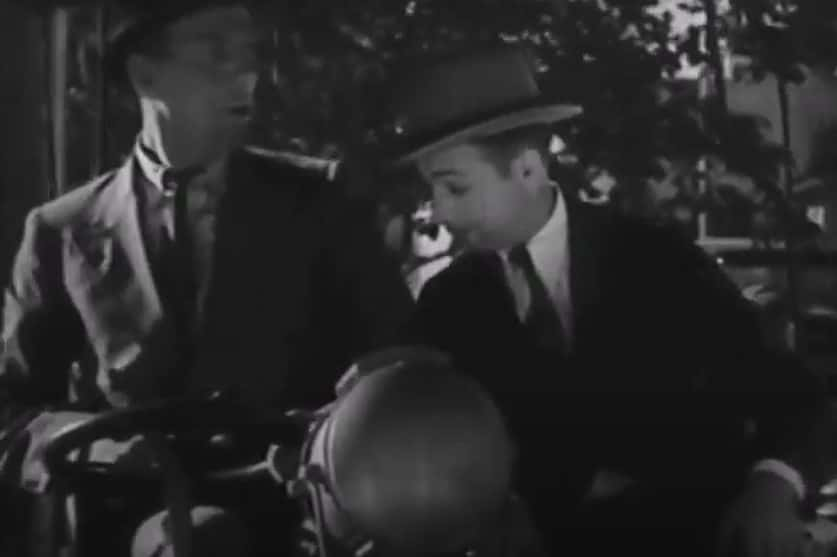 Dumbbells in Derbies (1931), Larry Darmour Productions
Dumbbells in Derbies (1931), Larry Darmour Productions
34. He Was In Mourning
There are no records of Dane ever returning to Denmark to visit his family. And yet, in this infamous interview, Dane claimed that he couldn't continue acting for MGM because he was mourning his father’s passing...which had happened three years previous. It seemed that Dane was, for some reason, trying to convince the public that it wasn’t his accent that was holding him back—even though it most certainly was.
35. He Hit The Road
MGM’s loss was Paramount’s gain. The studio took on Dane, but, instead of putting him in a film, they sent him on the road with his partner Arthur to do a vaudeville tour. The tour lasted 23 weeks and even included a couple of short films. Sadly, after the 23 weeks were up, Dane and Arthur were through with each other…and Paramount was through with Dane.
The spurned actor was left with no contract and no prospects.
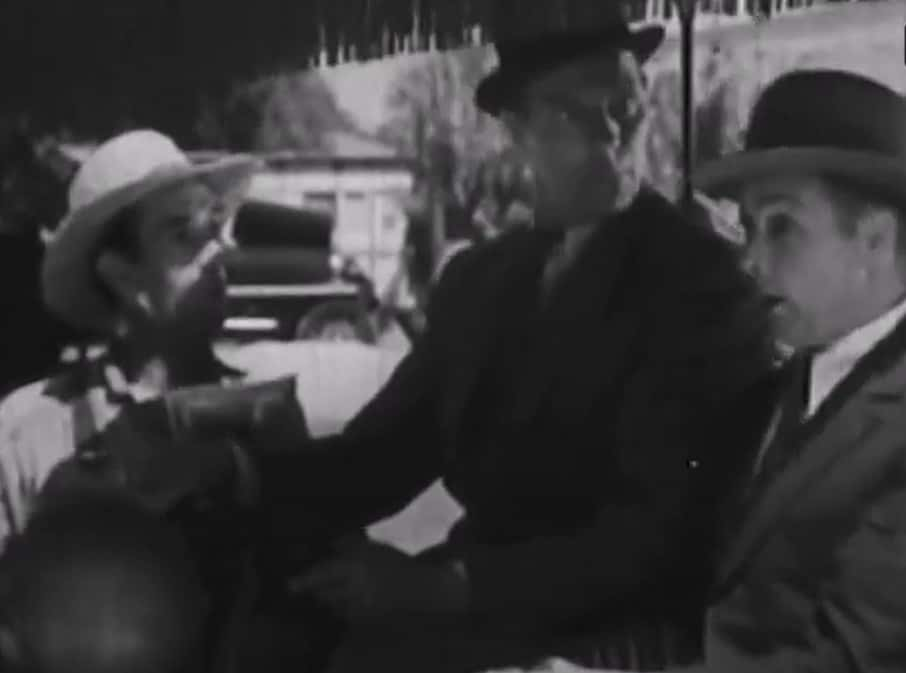 Dumbbells in Derbies (1931), Larry Darmour Productions
Dumbbells in Derbies (1931), Larry Darmour Productions
36. He Dug Deep
After his vaudeville tour, Dane's moment in the sun came to a sudden halt. He had no choice but to leave show business altogether. In the wake of all this disappointment, he made a startling decision. With the help of some friends, Dane started a mining company. They called the company Avelina Mines, and the venture was a huge risk. He thought it was a sure thing—but he was so, so wrong.
37. He Went Solo
Sadly, Karl Dane's mining company crashed and burned in less than a year. The failure began to eat at him—but the nightmare had only just begun. With his options dwindling, Dane reluctantly returned to the stage, and this time, it was a solo vaudeville act. The reviews were horrendous. The critics came for Dane with their claws out, ending his show at breakneck speed.
Dane made one more film appearance—in the Bela Lugosi thriller The Whispering Shadow—before quitting show business for good. But what would he do for money now?
38. He Drove And Drove
Dane’s first attempt at a career in the mining industry had been a bust, but that didn’t stop him from trying again. Dane took his car and drove up and down the coast of California looking for a mining deal. Dane eventually came across something that seemed promising, but he ended up losing $1,100 on it. He returned home depressed and even more in debt than ever before.
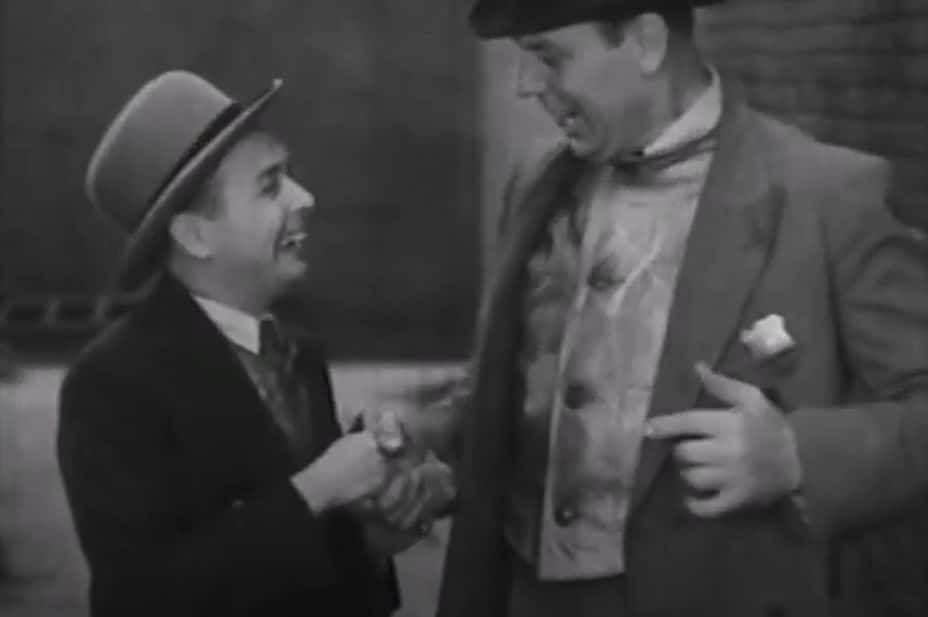 Dumbbells in Derbies (1931), Larry Darmour Productions
Dumbbells in Derbies (1931), Larry Darmour Productions
39. He Was Too Good
To make ends meet, Dane returned to his pre-movie gig as a car mechanic. When that didn’t work out, he tried to be a carpenter—which also didn’t stick. With his life spiraling out of control, Dane had to take a good hard look at himself. Could it be that his ego was getting in the way? Had all those years as a movie star made him feel too good for a regular job?
Well, if Dane thought he'd hit rock bottom, he was sadly mistaken. He still had further to fall.
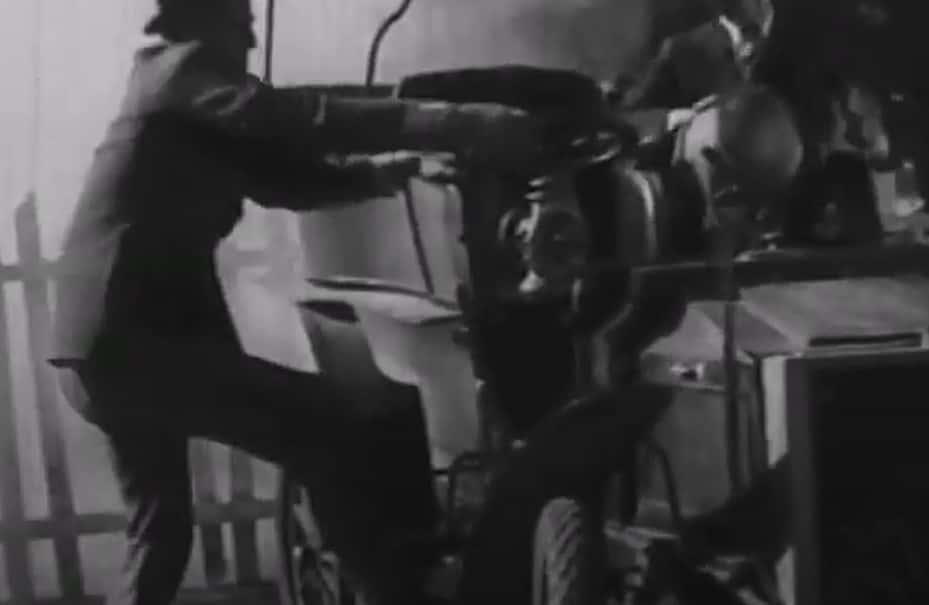 Dumbbells in Derbies (1931), Larry Darmour Productions
Dumbbells in Derbies (1931), Larry Darmour Productions
40. He Took A Risk
What little money Dane had left, he decided to invest. He chose a small lunch restaurant and his plan was to be part owner and also work the counter. The catch was that the luncheonette was located very close to MGM studios, where he’d once been a star. Dane’s partner in the business thought it would be great publicity to have the once-great Karl Dane making sandwiches for patrons.
A good idea on paper, yes. In reality…well, let’s see.
41. He Sent Them Running
Diners were over the moon to see an in-the-flesh movie star behind the counter at the little cafe down the street from MGM studios. It did wonders for business for a short time, and then customers stopped coming. Dane’s partner wanted to know why, so he watched Dane working the counter to see what was going wrong. He soon understood why customers were fleeing the restaurant like rats from a sinking ship.
42. It Didn’t Go Down Well
Dane’s restaurant partner soon figured out why business was so bad. Dane was down in the dumps about doing such a menial job—especially so close to where he’d been a star. The patrons of the diner could feel Dane’s despair and…well, it didn’t go down well with burgers and milkshakes. This was another huge failure for Dane. Sadly there was still more rejection in his future—but how much more could he take?
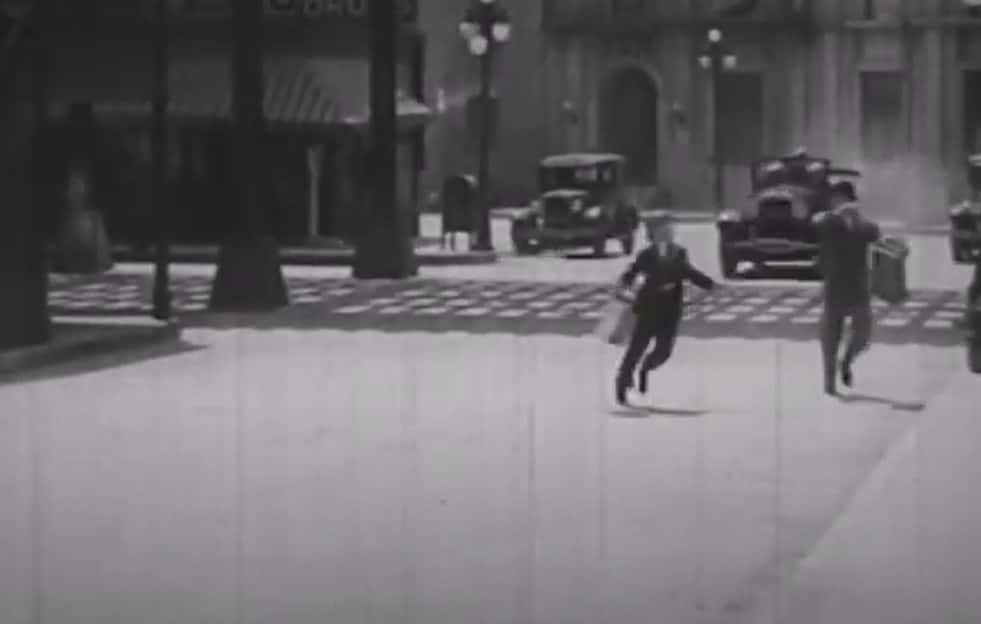 Dumbbells in Derbies (1931), Larry Darmour Productions
Dumbbells in Derbies (1931), Larry Darmour Productions
43. They Rejected Him—Twice
Dane was on a dangerous crash course and it led him right back to the old glory days. He decided to look for work at MGM and Paramount—but it only led to more heartbreak. The studios refused to hire him as a carpenter...Then they refused to hire him as an extra. It was clear to everyone but Dane that the studios didn’t want him anywhere near them.
Dane had given it his best shot and he returned home empty-handed once again.
44. He Had Nothing
On April 13, 1934, Dane was walking through the streets of Los Angeles, dragging his feet in misery. He had only $18 in his pocket and nothing more in the bank. His life seemed hopeless. He reached into his pocket to pay for something, and his hand came out empty. Someone had pickpocketed his last $18. He had truly hit rock bottom. He literally had nothing.
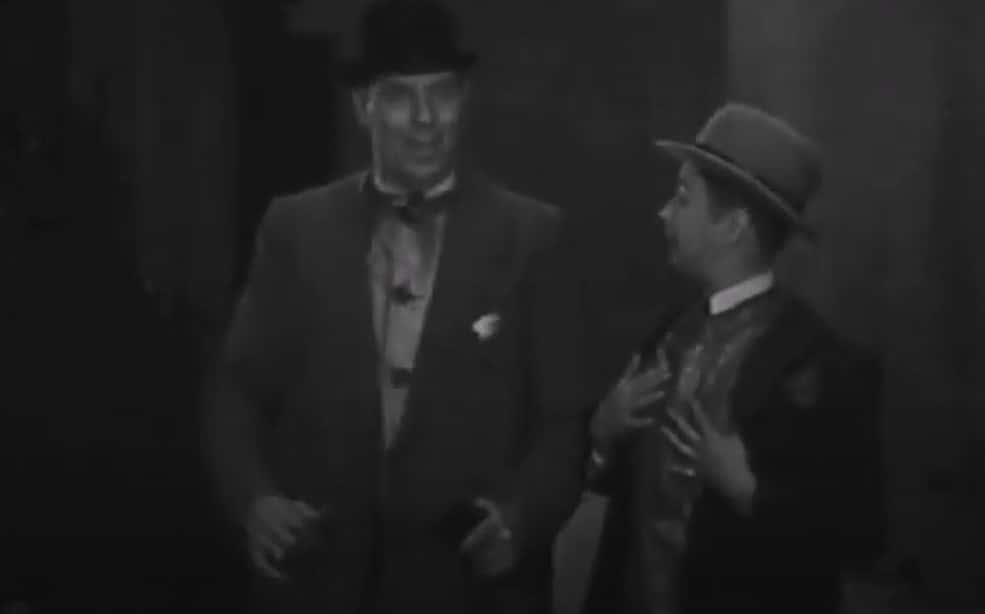 Dumbbells in Derbies (1931), Larry Darmour Productions
Dumbbells in Derbies (1931), Larry Darmour Productions
45. He Didn’t Show
The next day, Dane had made plans to see a movie with his friend Frances Leake. But this promising pick-me-up took a disturbing turn. You see, although Leake waited outside the theater, Dane never showed up. Worried about her friend's strange no-show, she decided to look for Dane at his apartment. But when she knocked on the door, nobody responded.
With a sinking feeling in her stomach, Leake contacted the owner of the building.
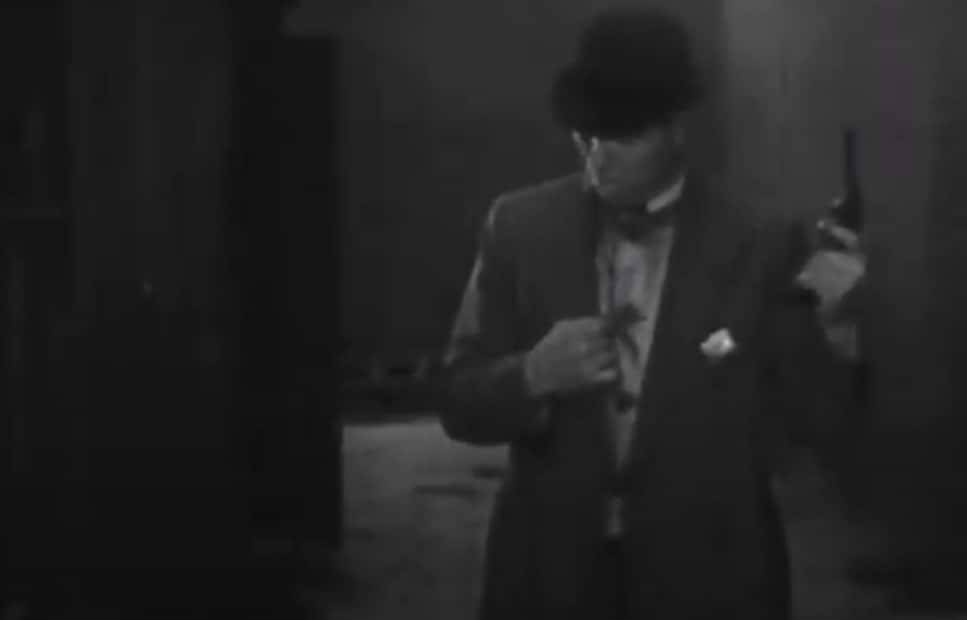 Dumbbells in Derbies (1931), Larry Darmour Productions
Dumbbells in Derbies (1931), Larry Darmour Productions
46. She Broke In
After a lot of convincing, the landlady reluctantly allowed Leake to enter the apartment. She tentatively stepped in and looked around to see if Dane was there. It didn’t take long to spot him—it was a very small apartment after all. But when Leake laid eyes on her good friend's body, she fainted on the spot. When Leake came to, she came face to face with the horror of her initial discovery.
47. He Was In A Chair
Leake saw Dane in his chair—his body covered in blood. At his feet was the revolver he’d used to end his life. There was also a note that was addressed to her and all his friends. In it, he simply said, "To Frances and all my friends-goodbye." But the horror show didn't end there. When Leake scanned the room, she realized how Dane had spent his final hours. What she saw broke her heart.
48. He’d Gone Back In Time
It turns out that Dane had spent his final hours looking at a scrapbook. In it were photographs and reviews of his work as an actor. There were also various memorabilia and even copies of his contracts. He was going through his history and trying to focus on all the wonderful highlights. Even after a trip down memory lane, he’d decided he no longer wanted to live.
If you can’t imagine a sadder end, just keep reading.
49. No One Came
Dane’s body stayed at the morgue a little longer than most, and the reason for this was absolutely heartbreaking: Nobody came to claim him. Eventually, the coroner had to attach a message to his body. It read: “may have relatives in Denmark, hold for a while.” They tried to find his relatives, the Gottliebs, in Denmark but failed. Without anybody to bury him, Dane would never rest in peace.
50. He Made A Demand
Actor Jean Hersholt heard the horrible news about Dane’s unclaimed body. Hersholt was an actor and, like Dane, was also from Denmark. He couldn’t bear the fact that Dane would not have a proper burial, but Hersholt couldn't pay for one himself. Hersholt contacted MGM studios and demanded that they help bury Dane. The usually harsh and stingy studio realized that it was the right thing to do and agreed to pay up.
51. He Was In Good Company
Dane’s funeral took place on April 18, 1934. About 50 mourners showed up to mourn his passing. Hersholt was a pallbearer, as well as a few other actors who’d known the great Karl Dane. MGM paid to have the body interred at the Hollywood Forever Cemetery. In the end, Dane’s final estate totaled less than $200.
26 years after his passing, Karl Dane eventually got his star on the Hollywood Walk of Fame.

